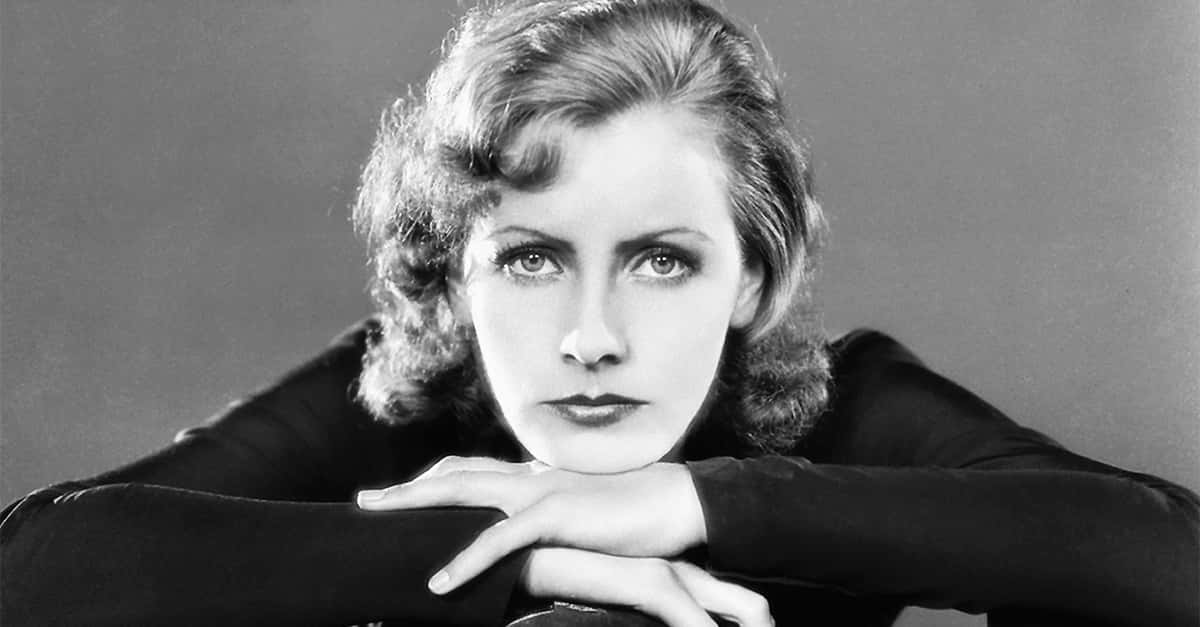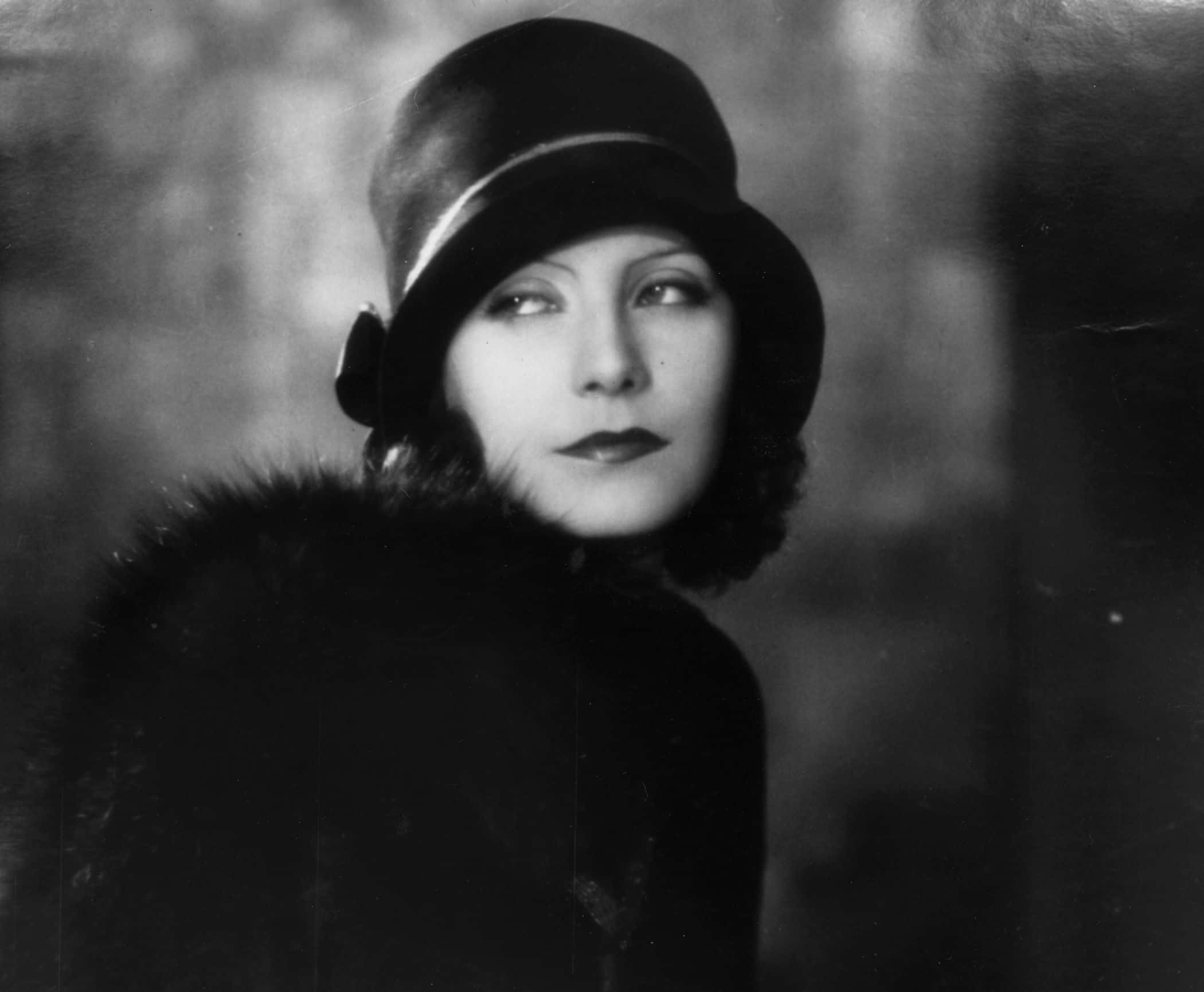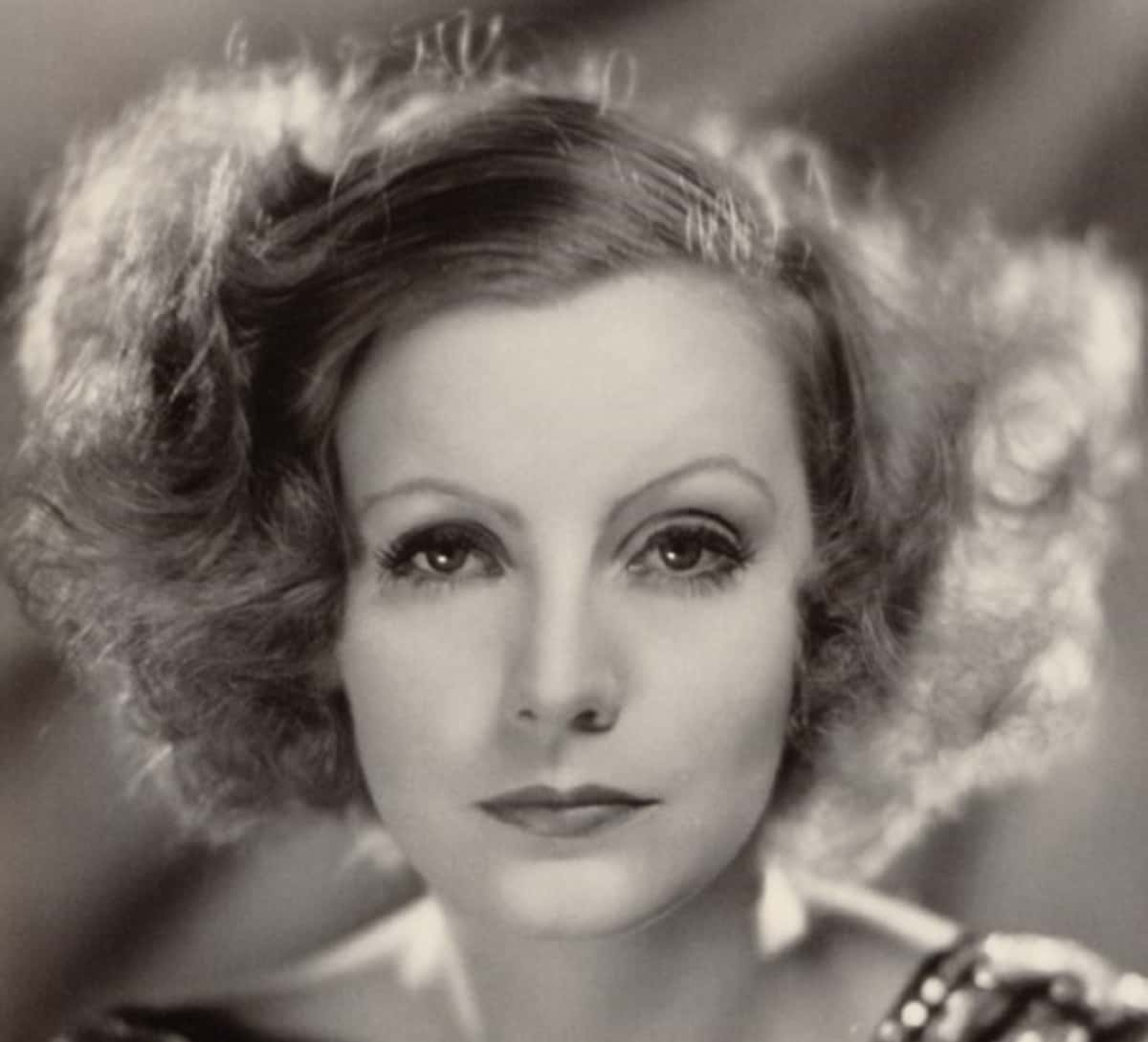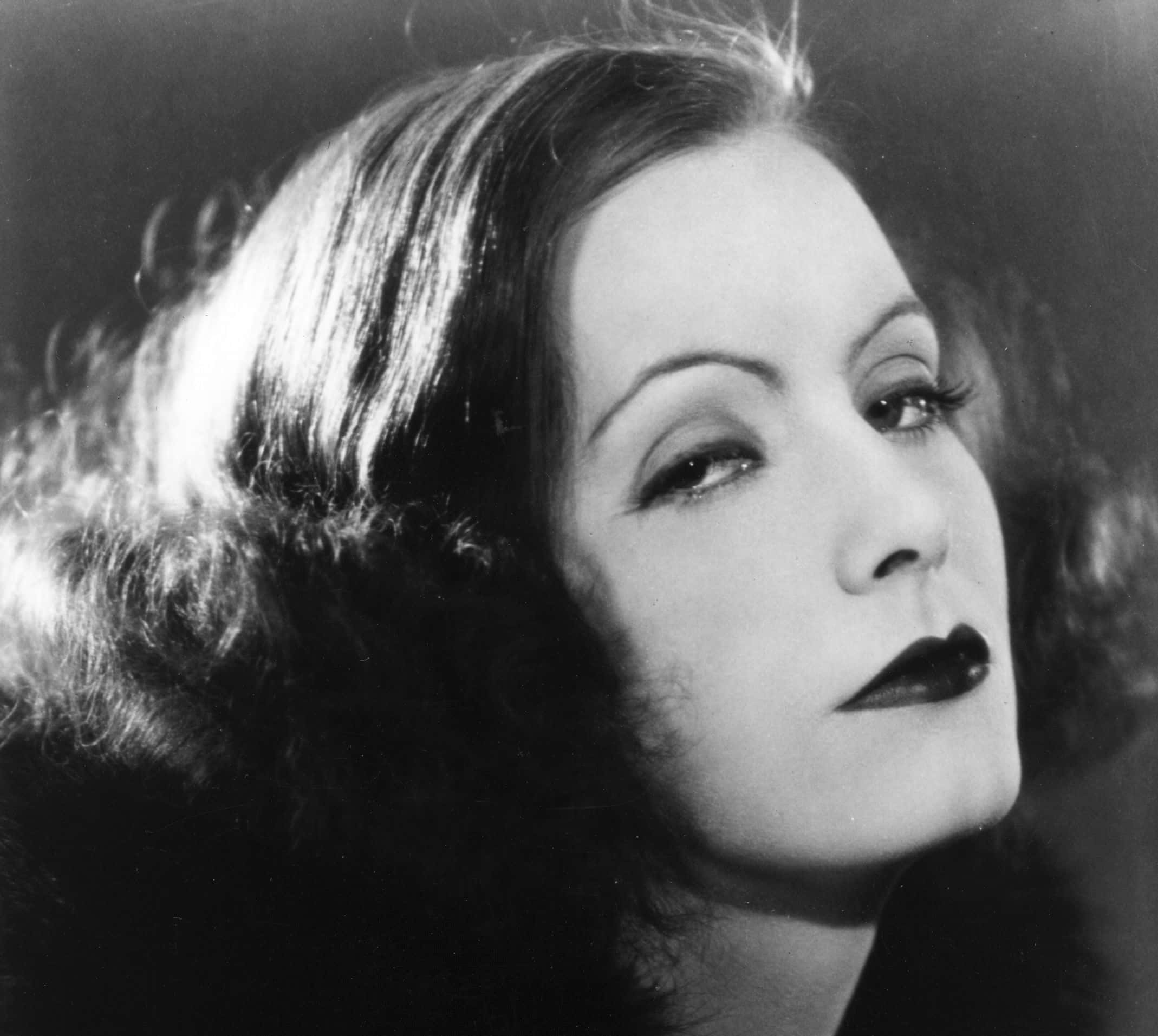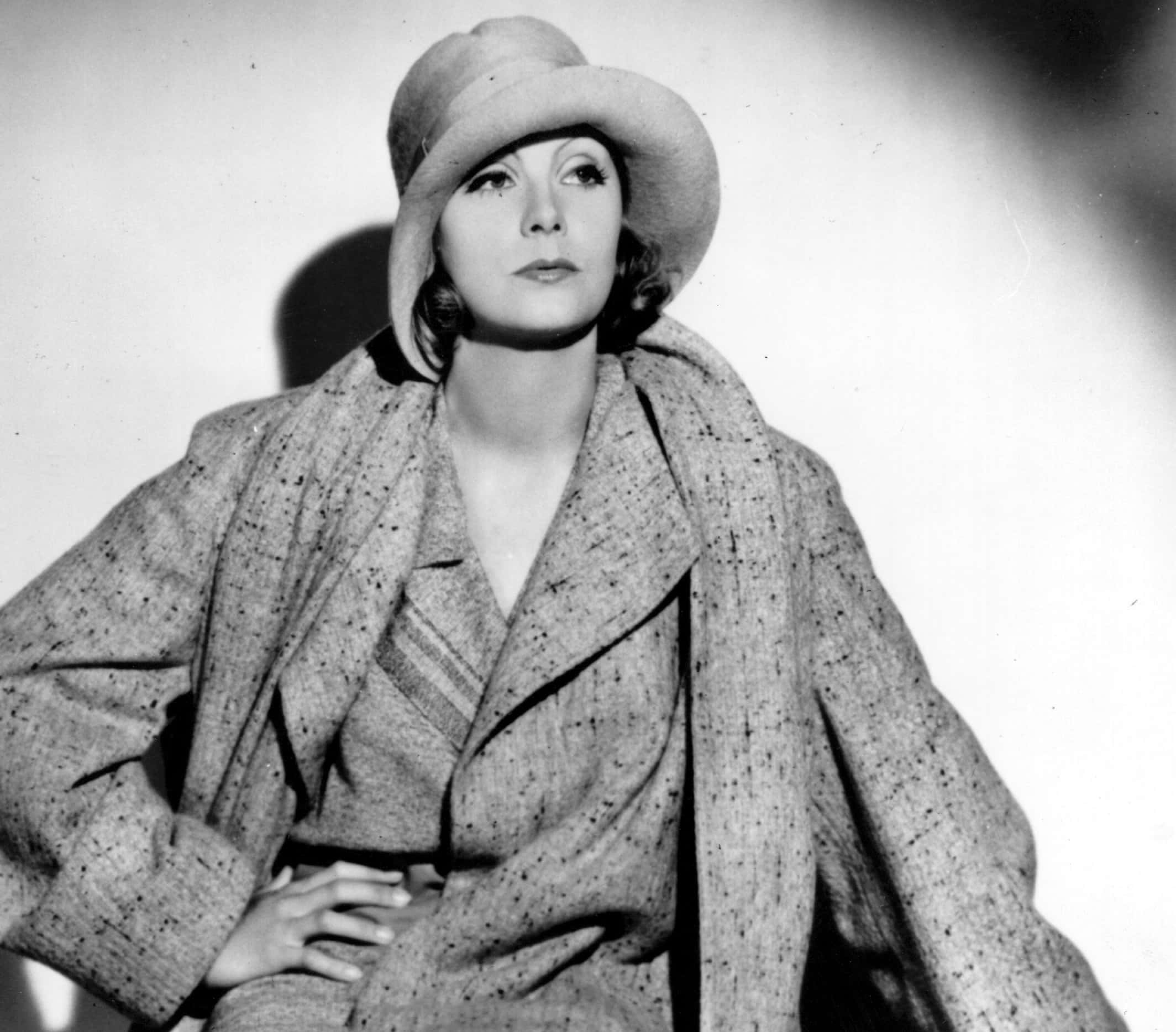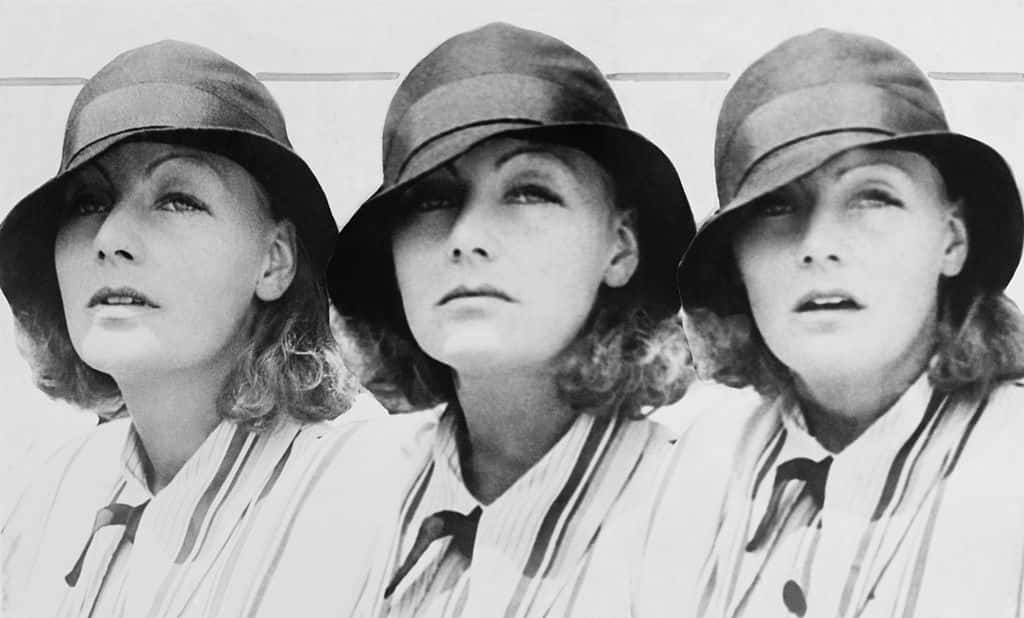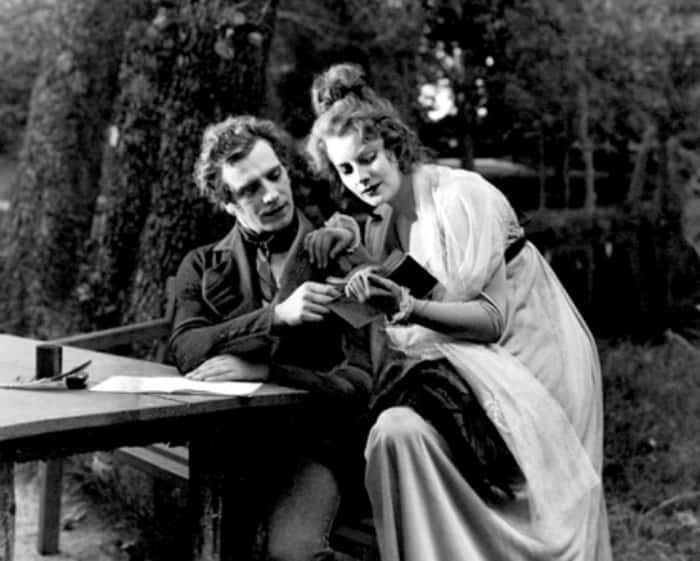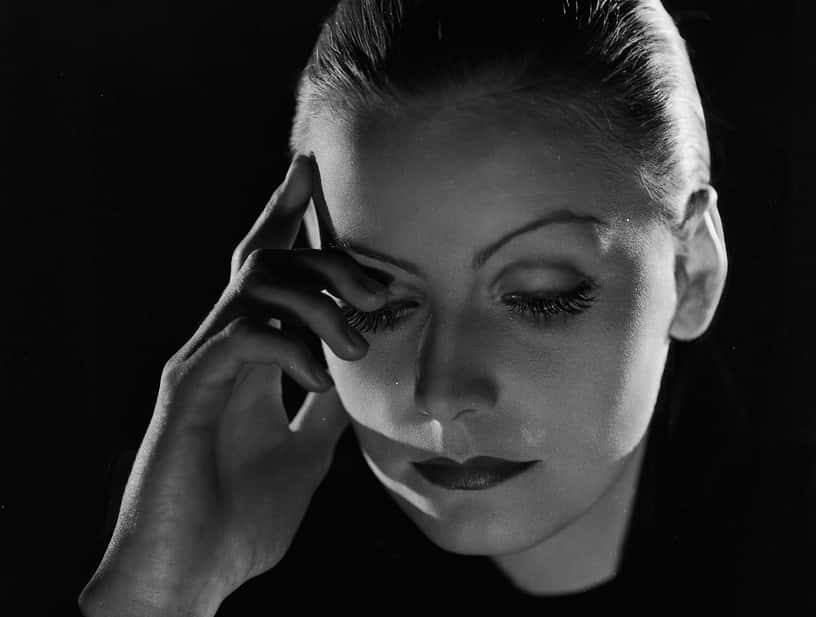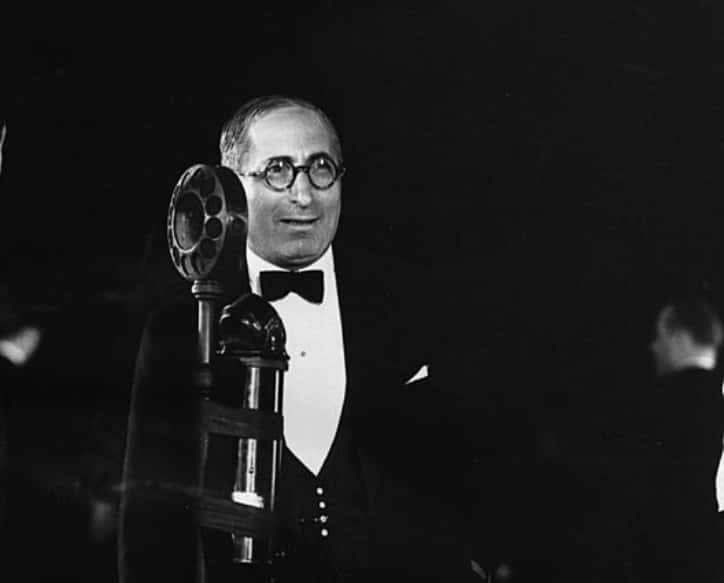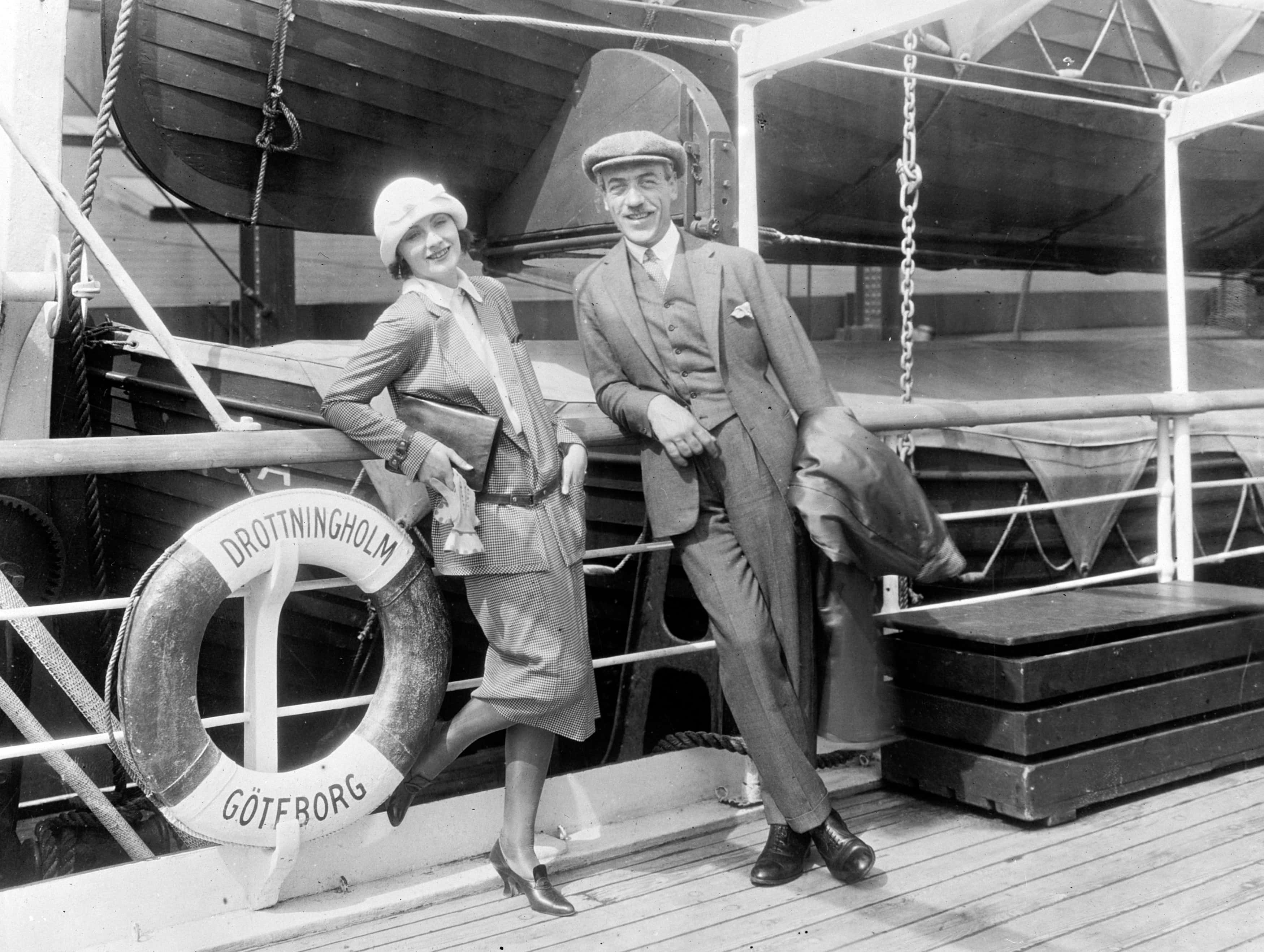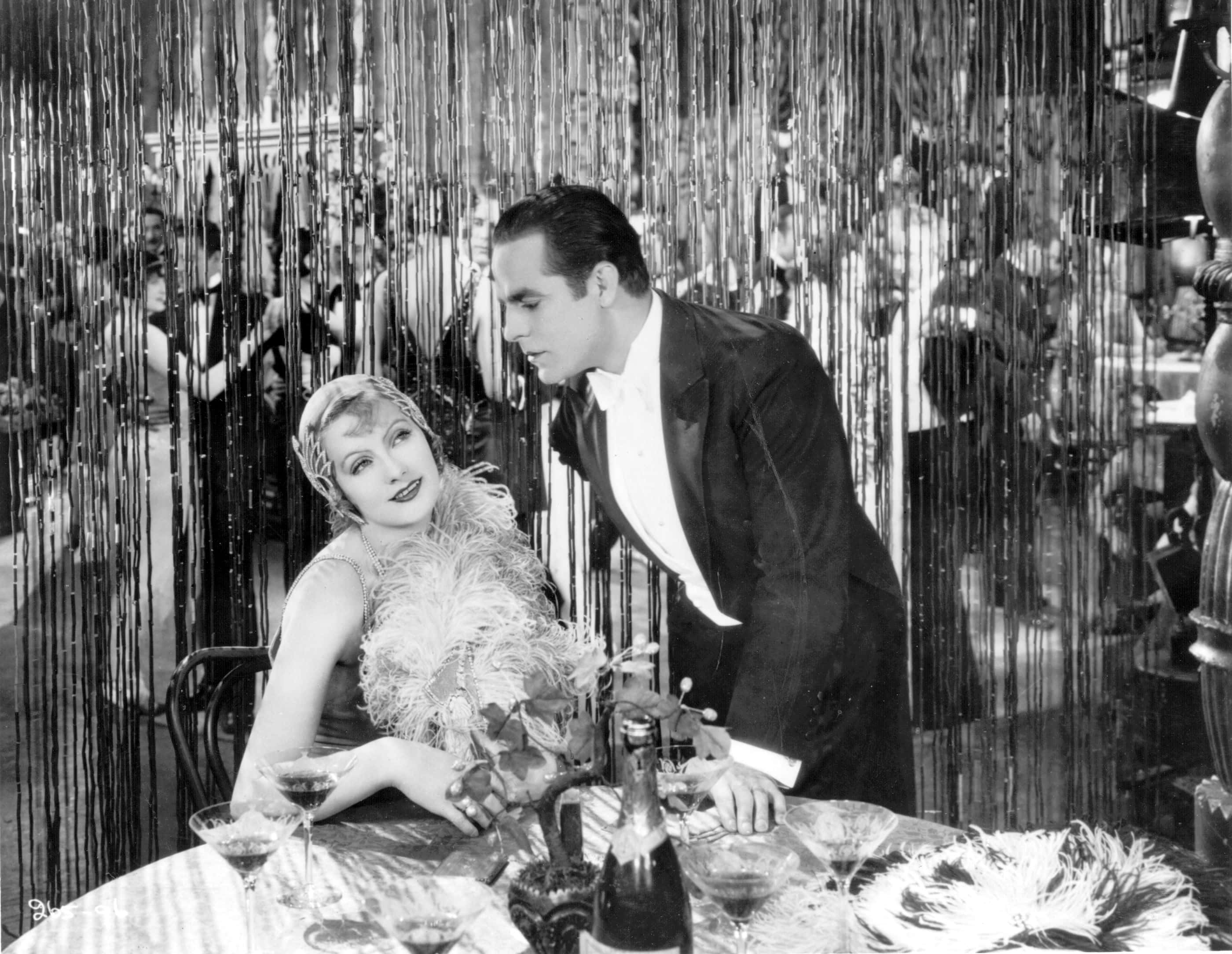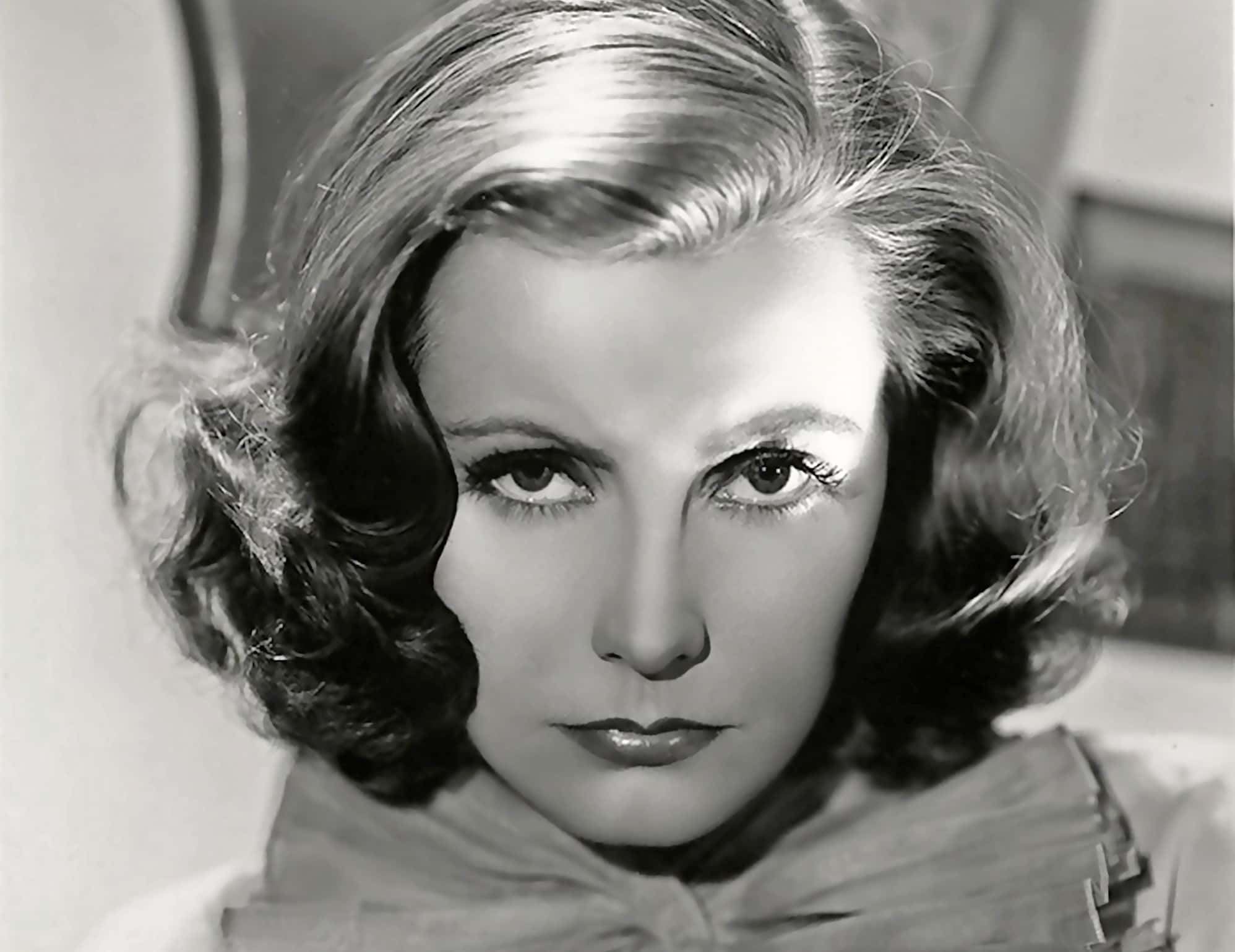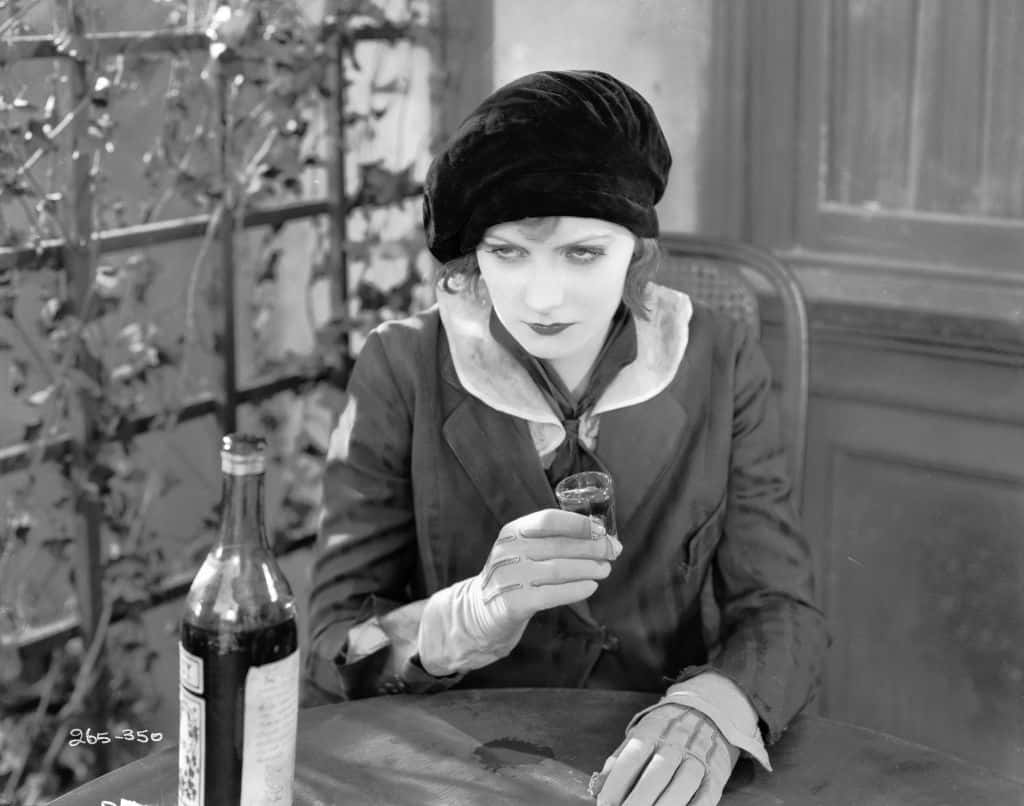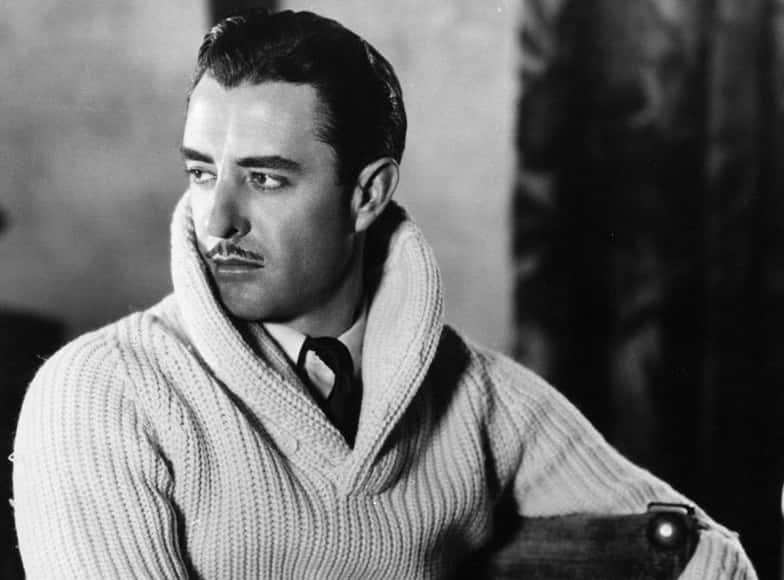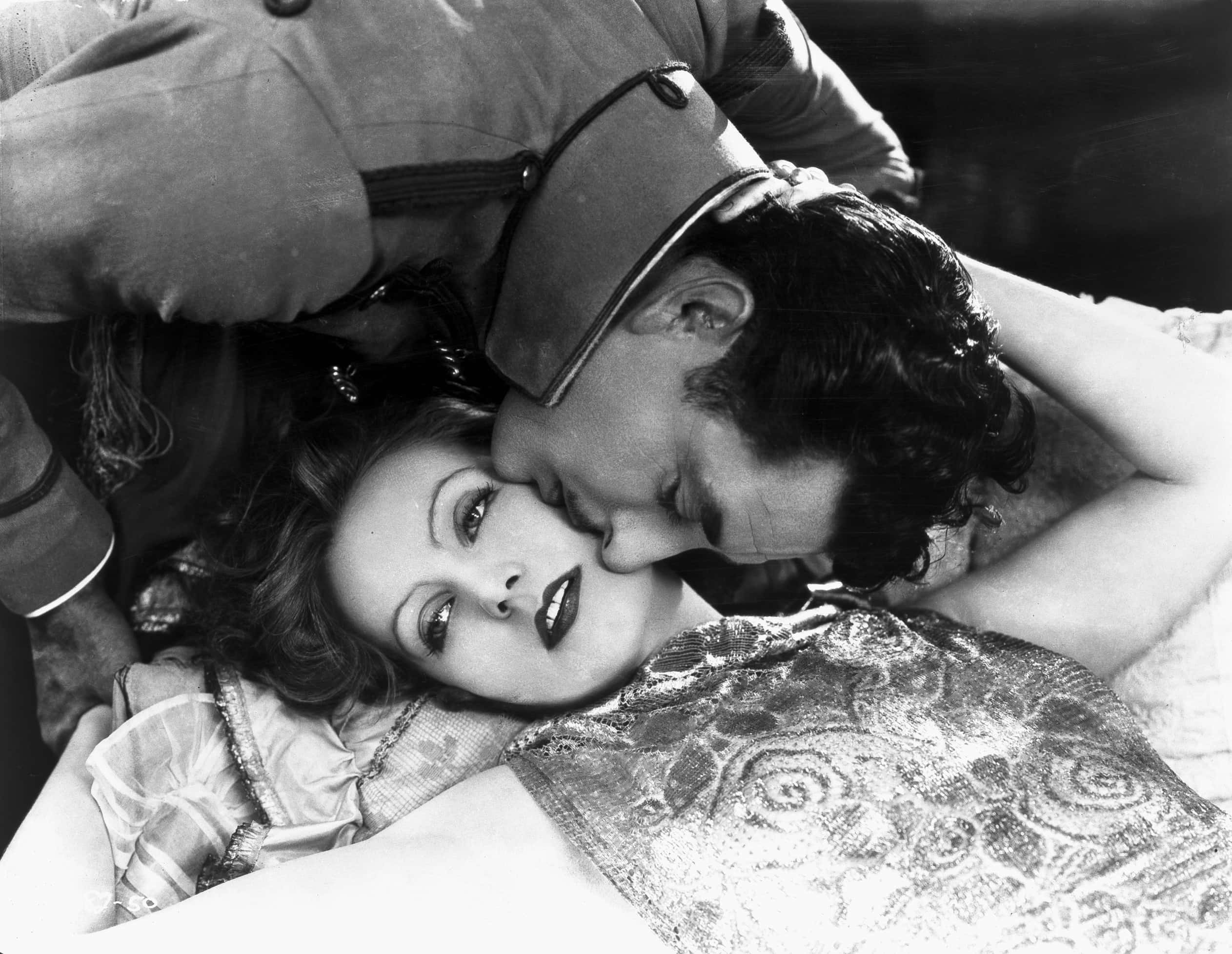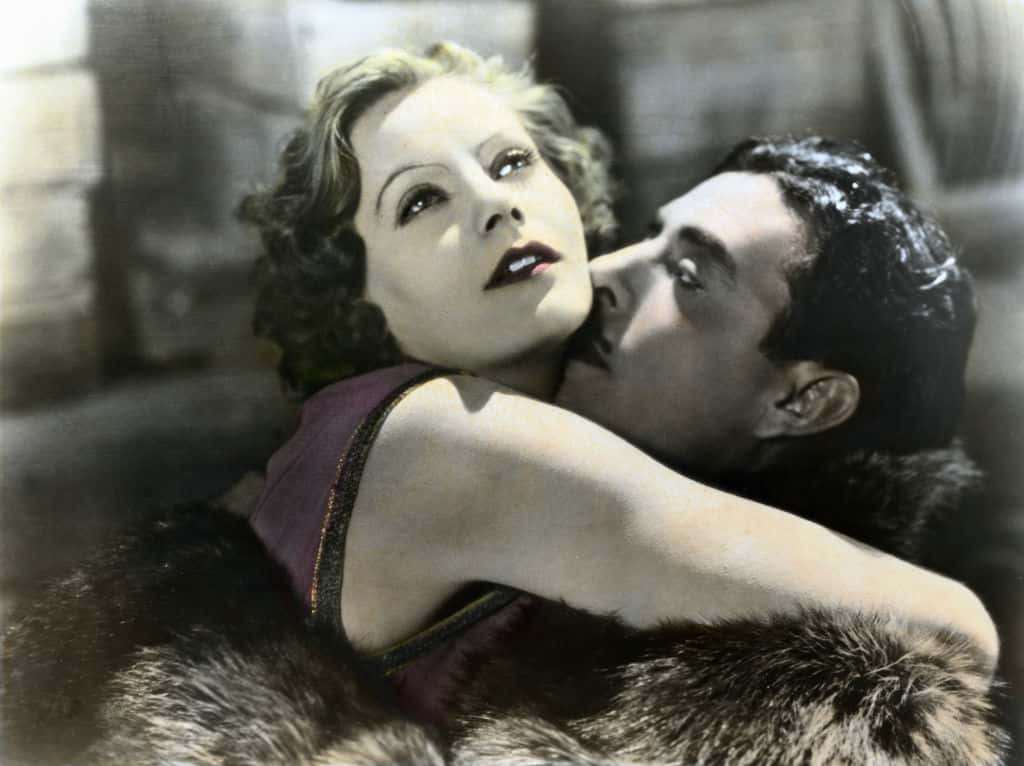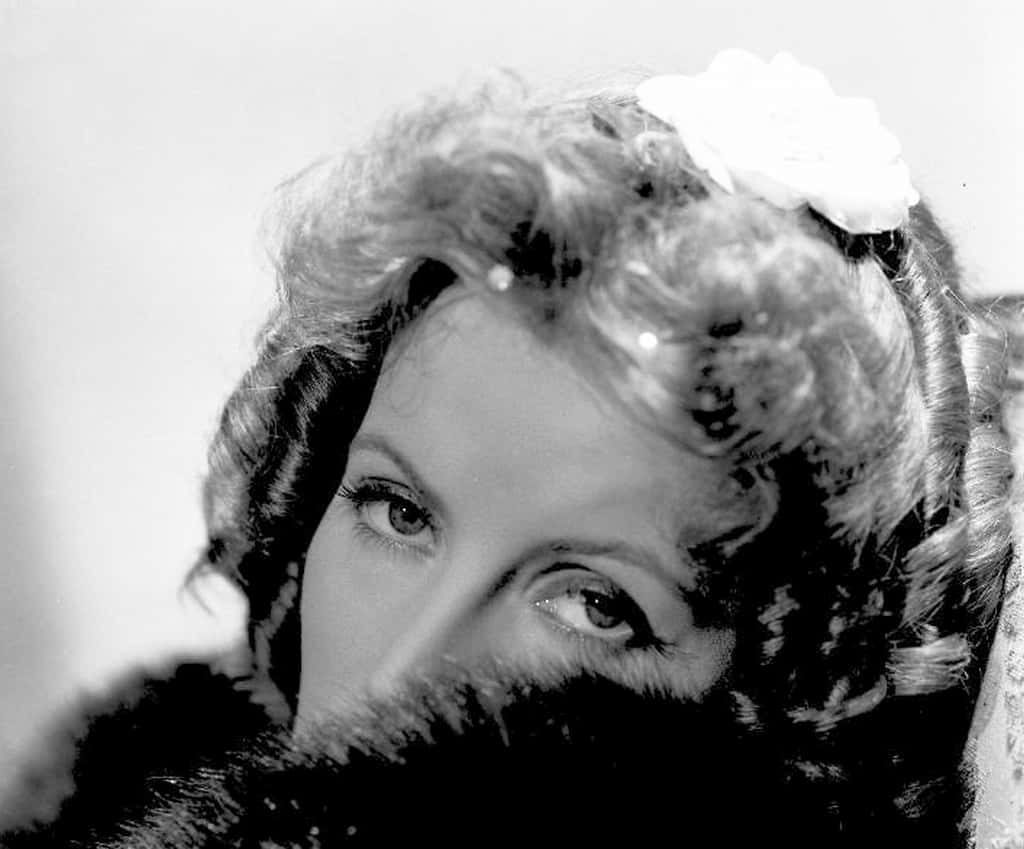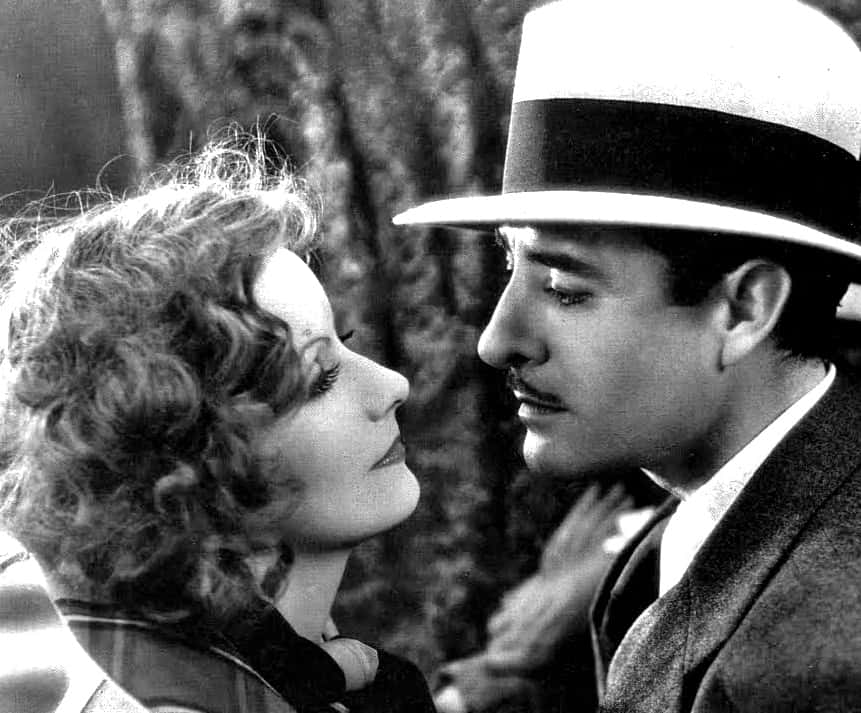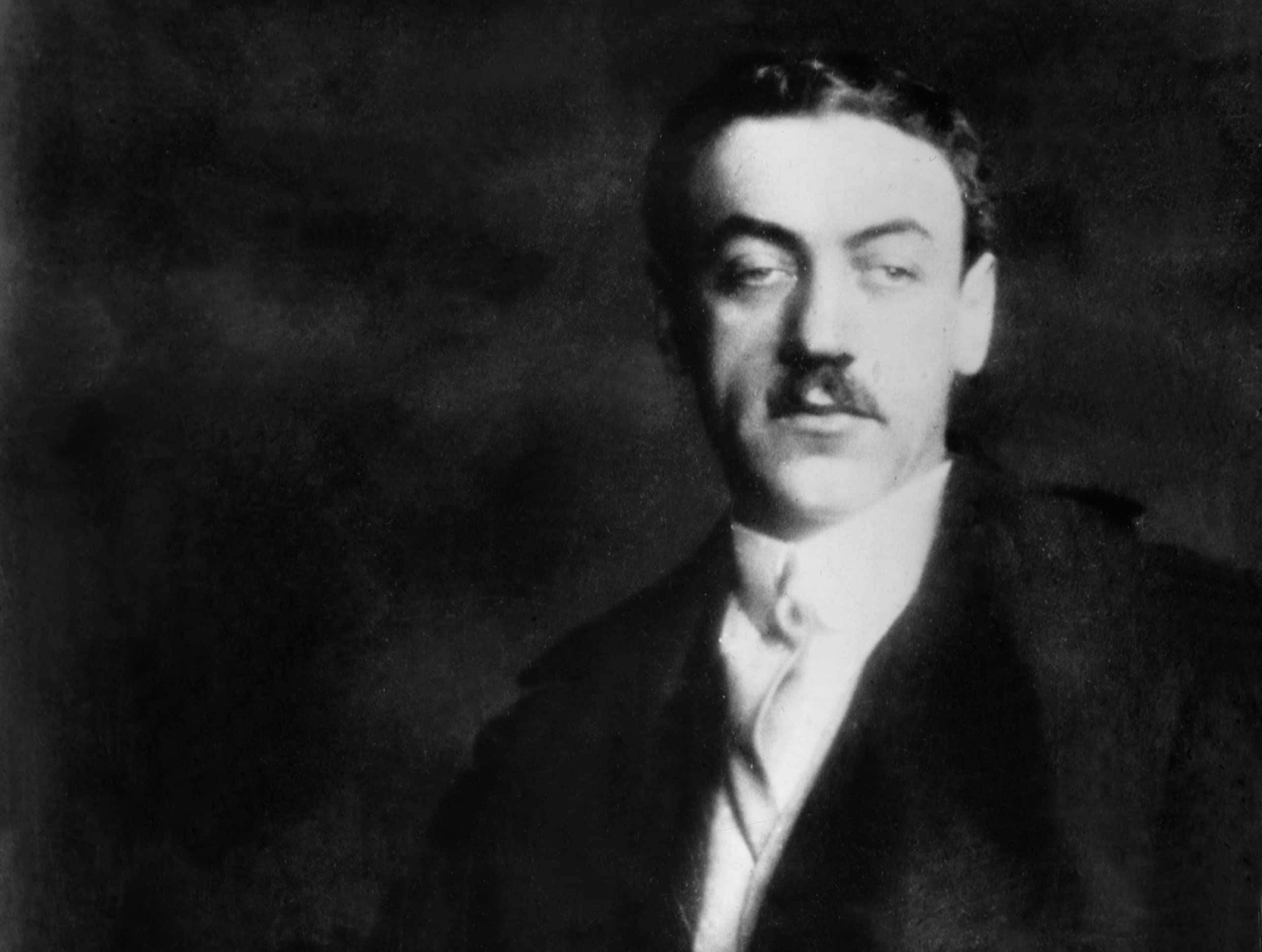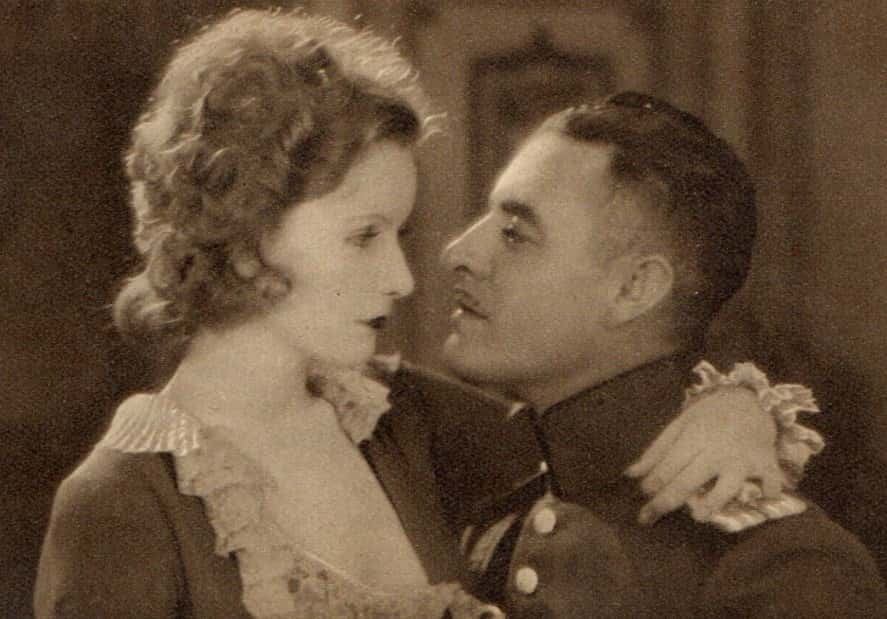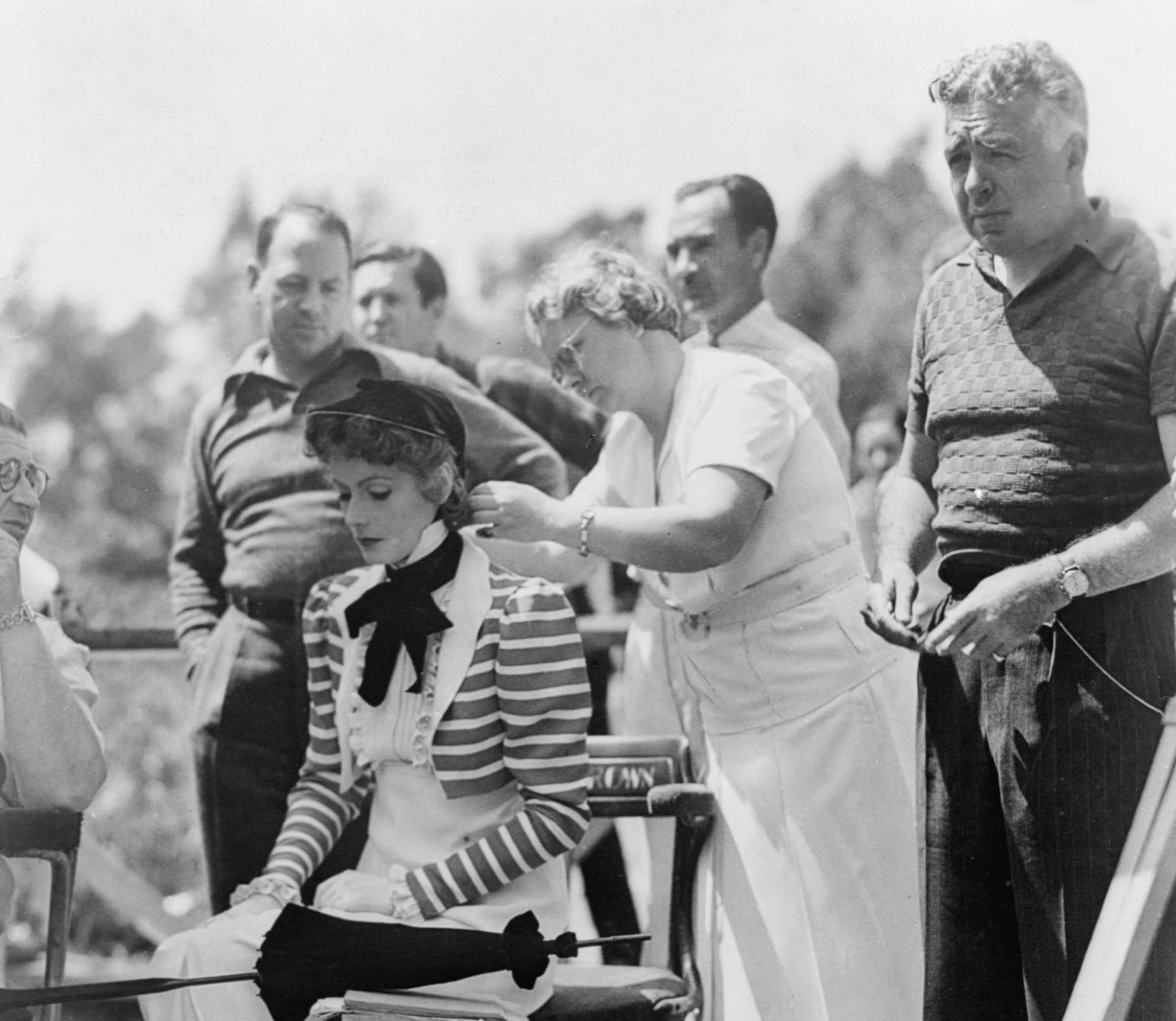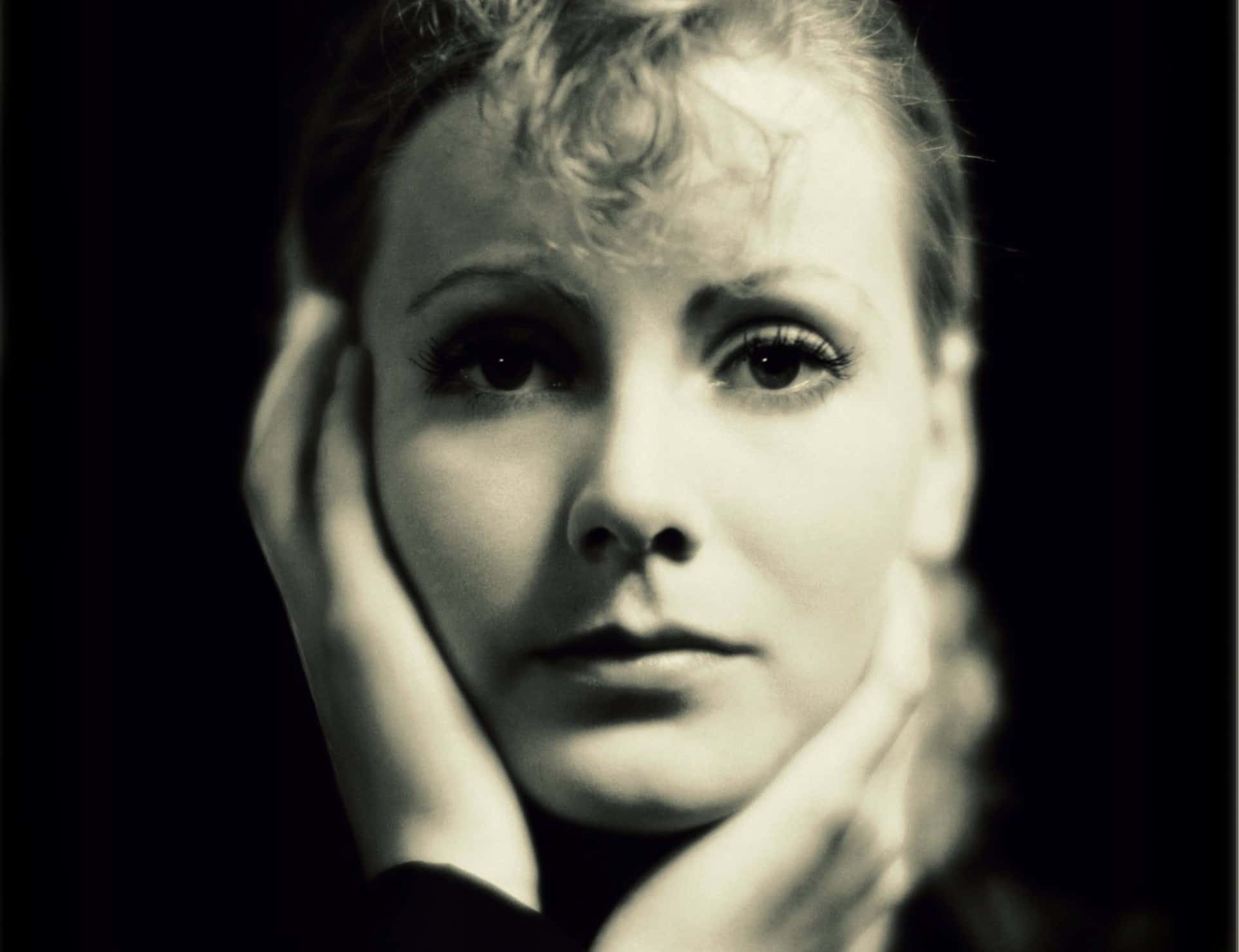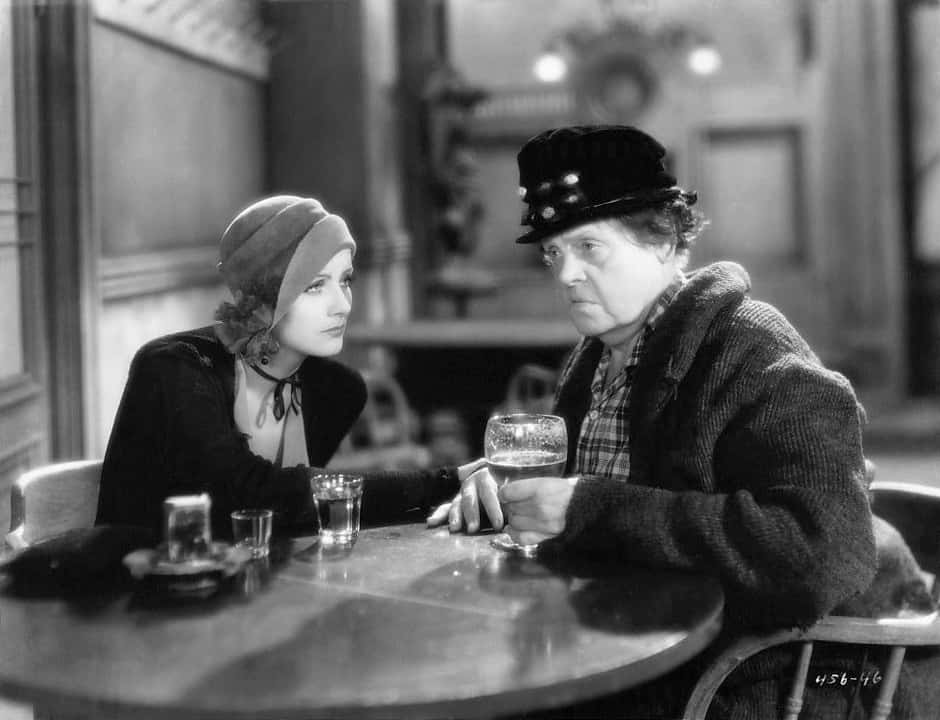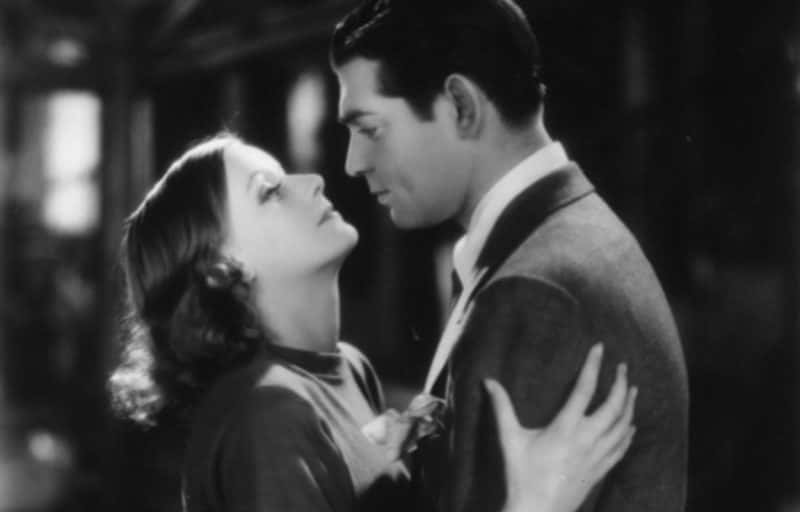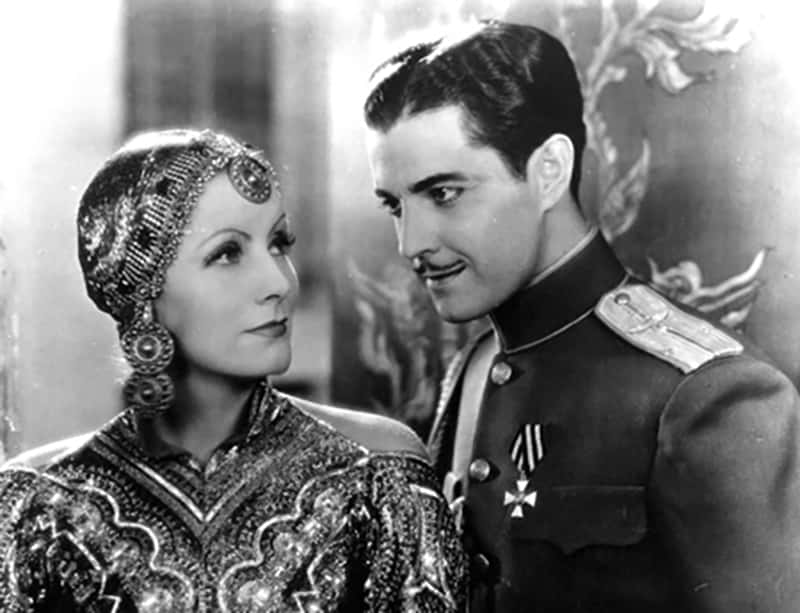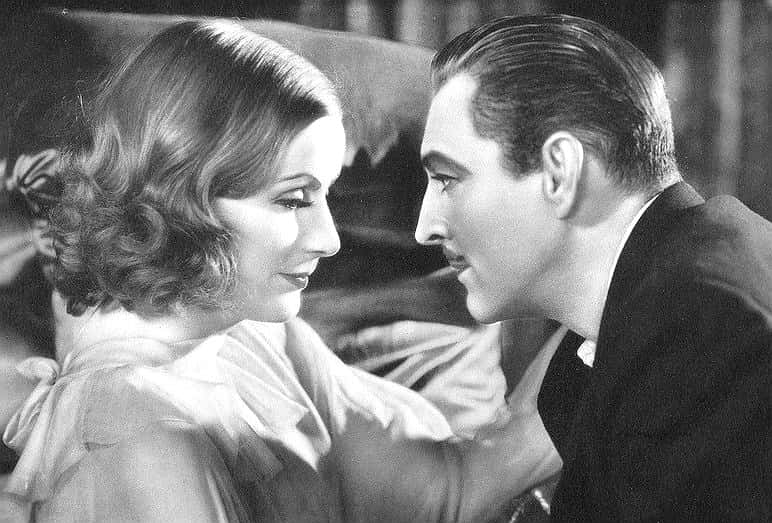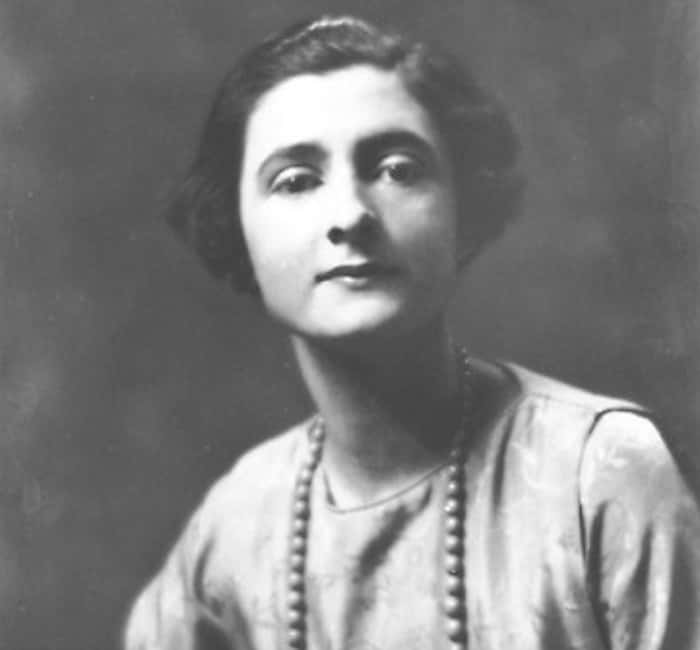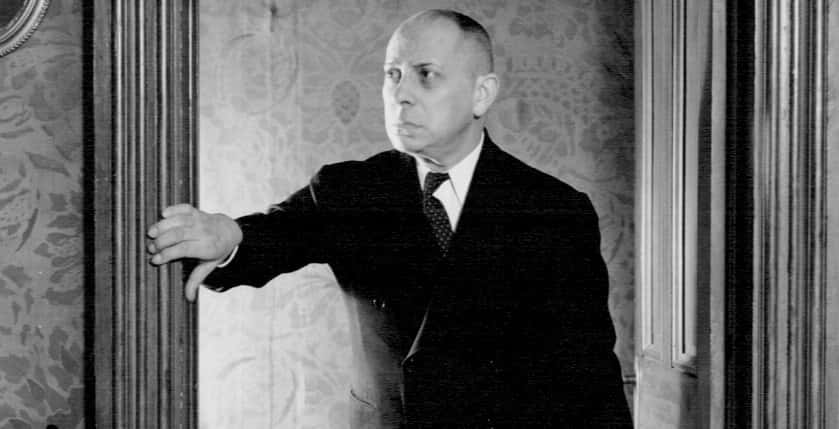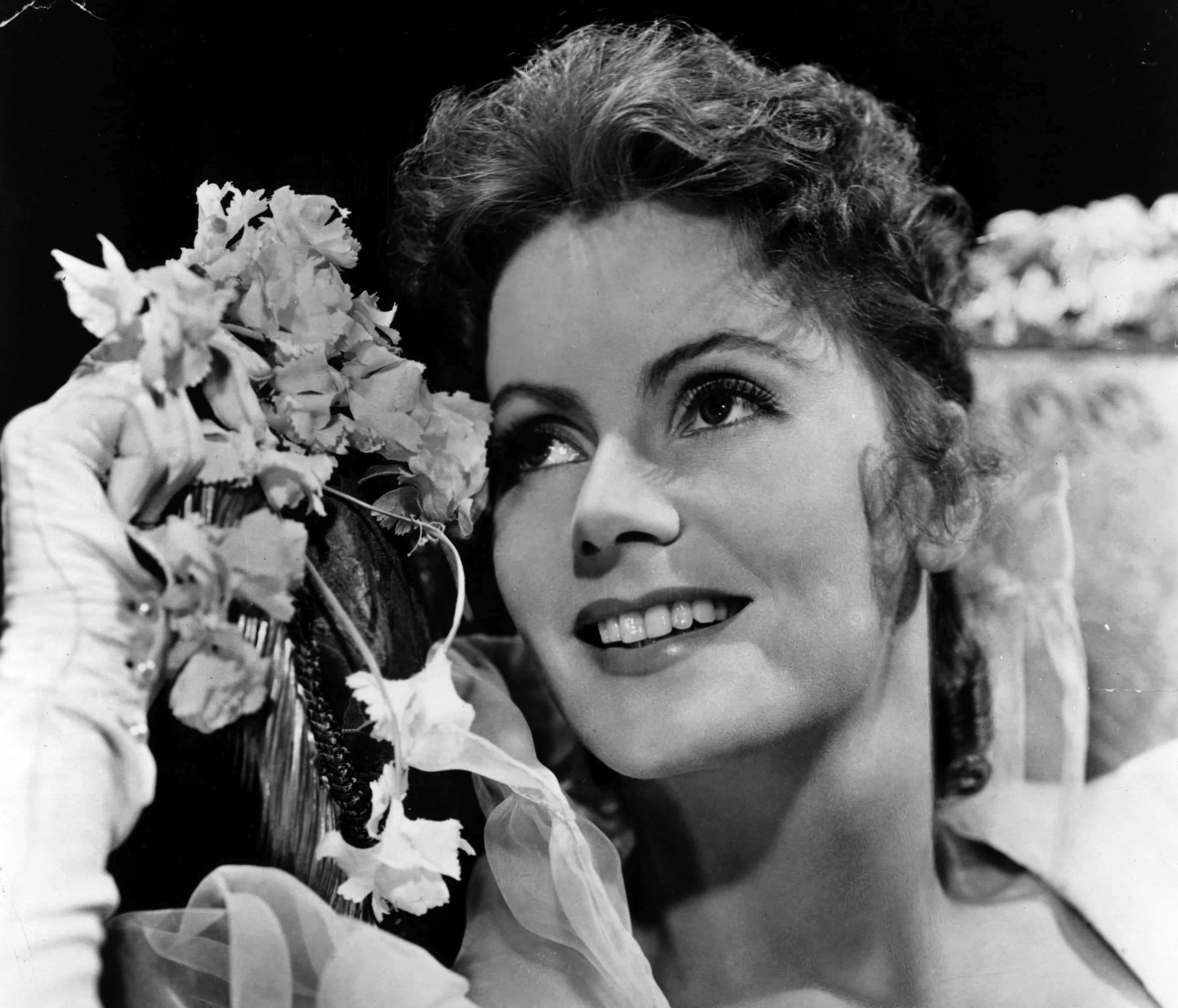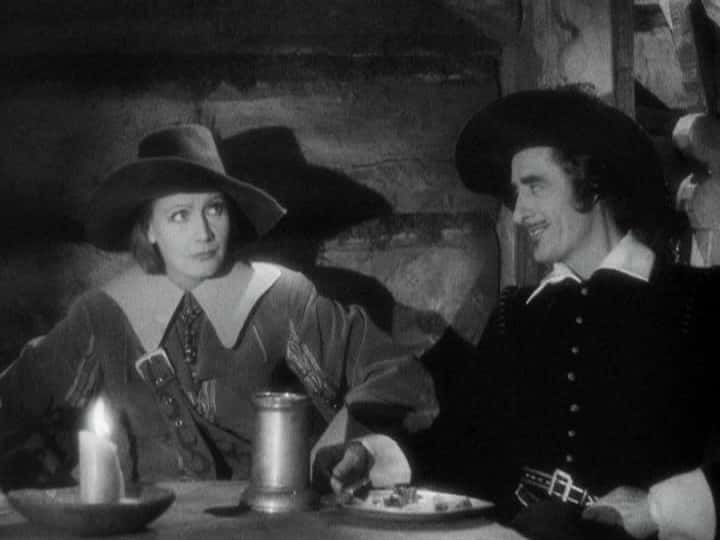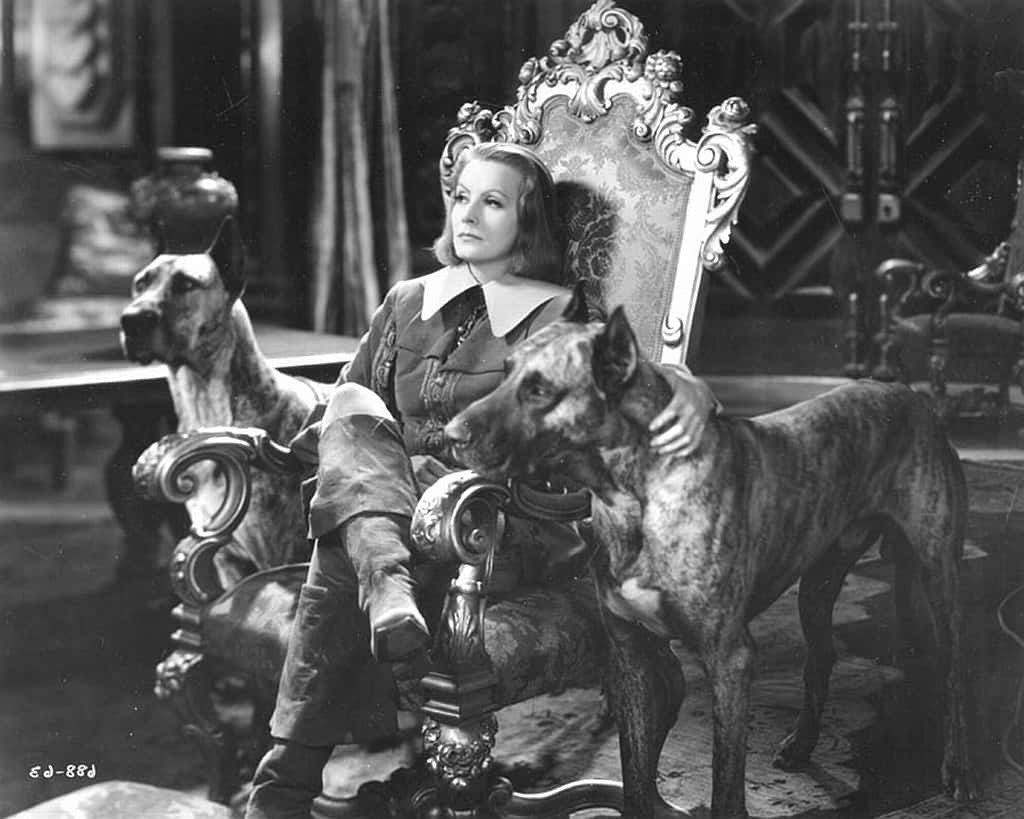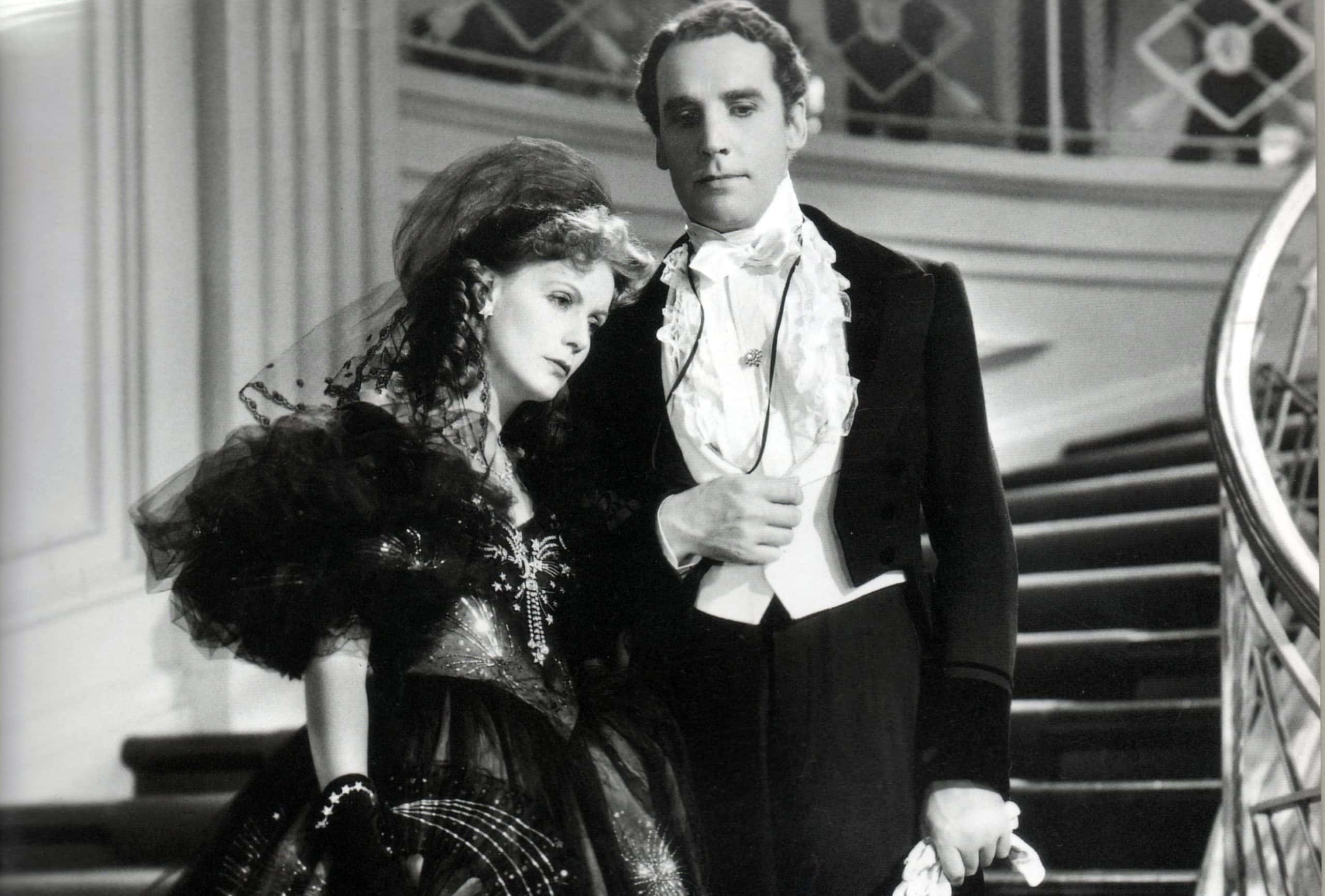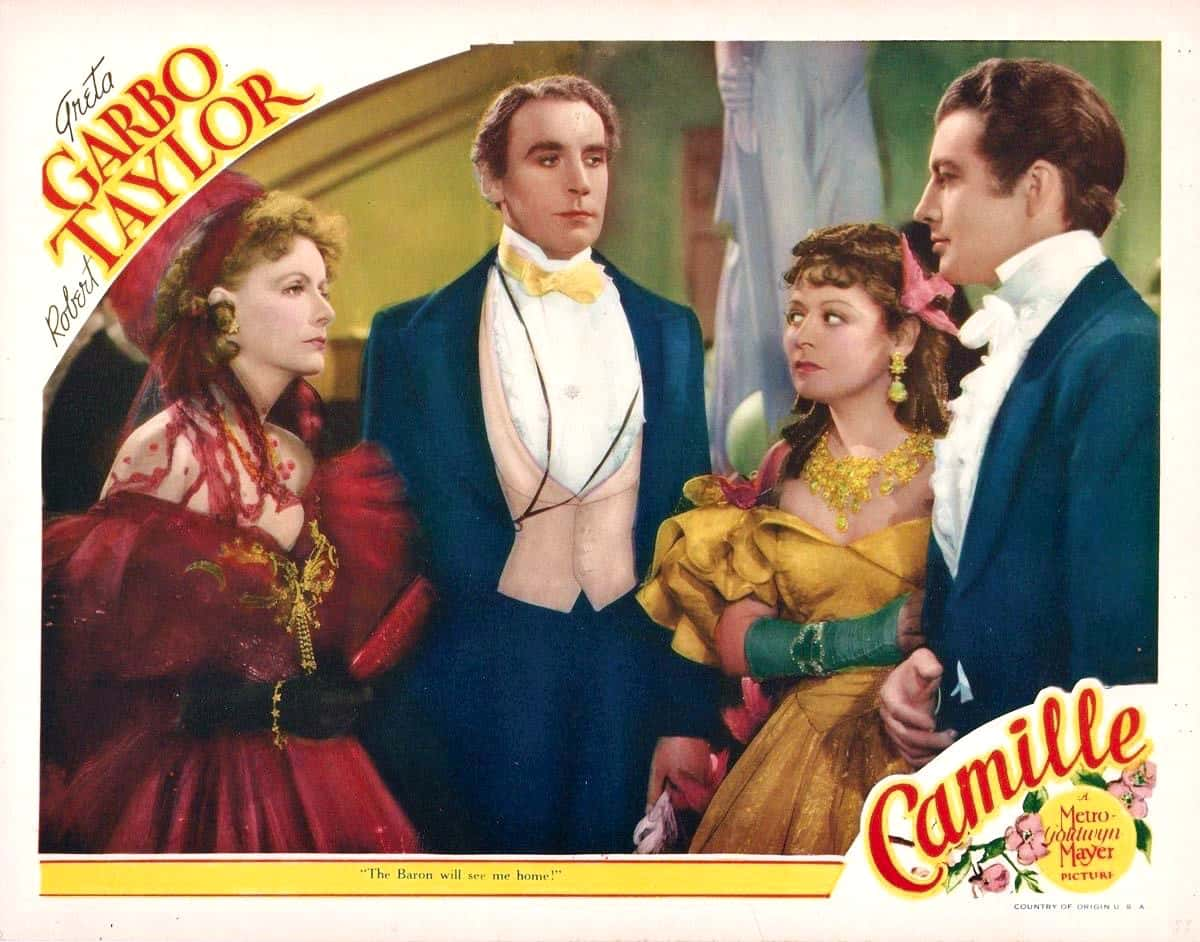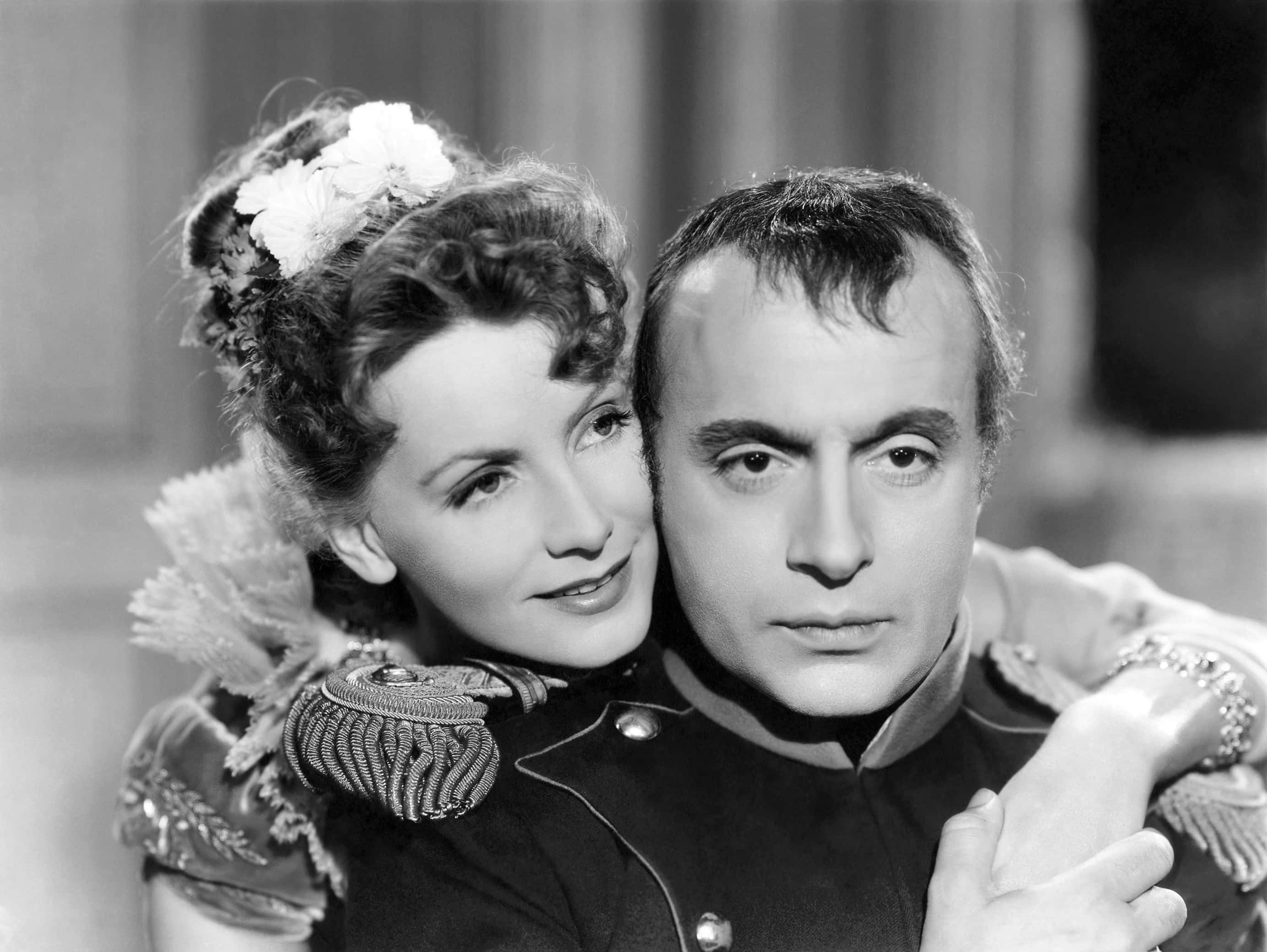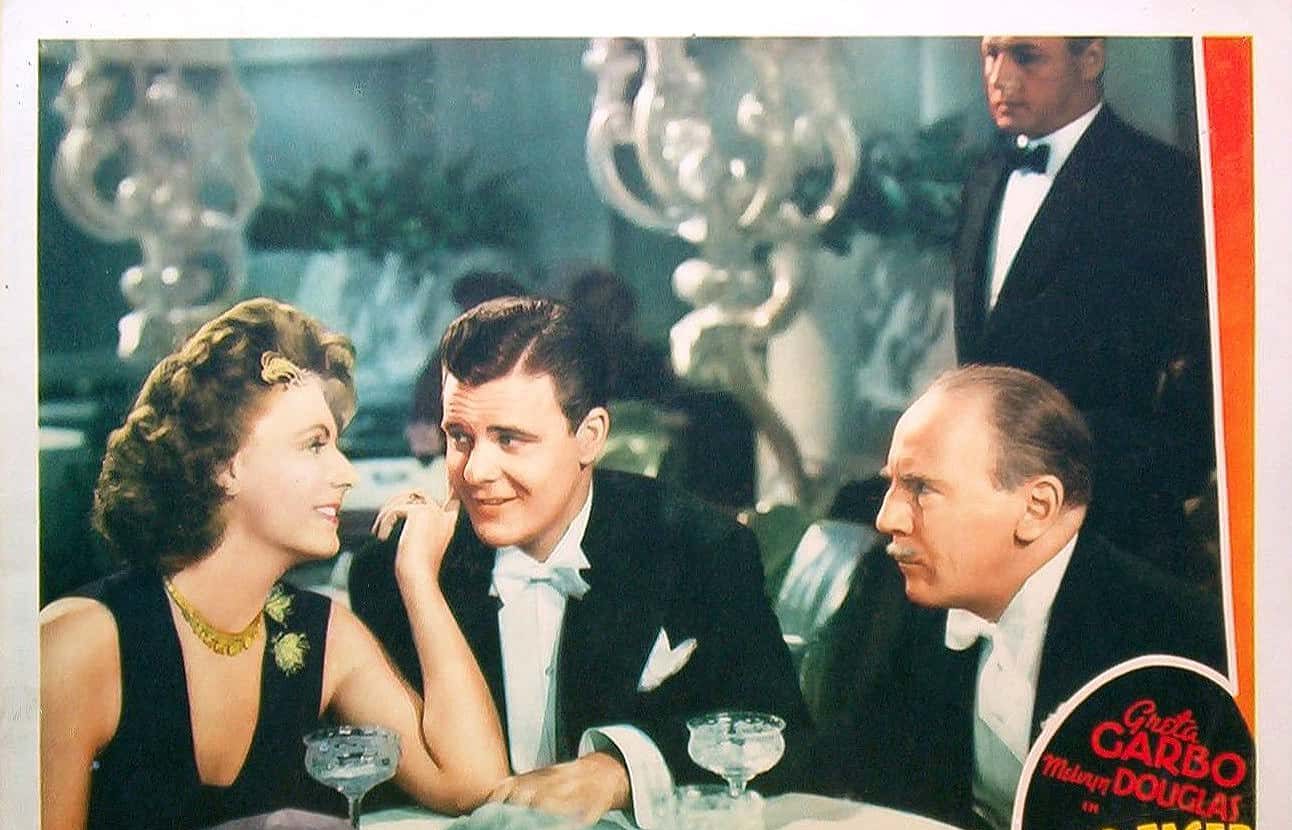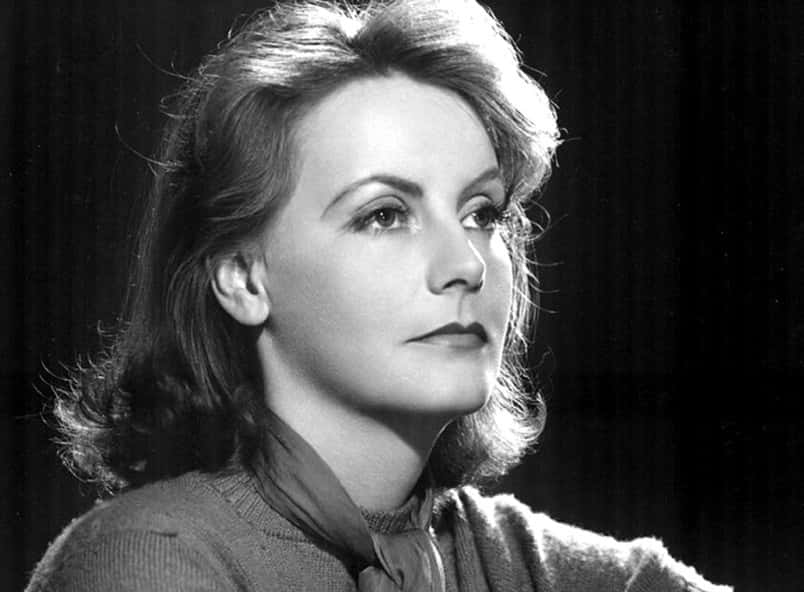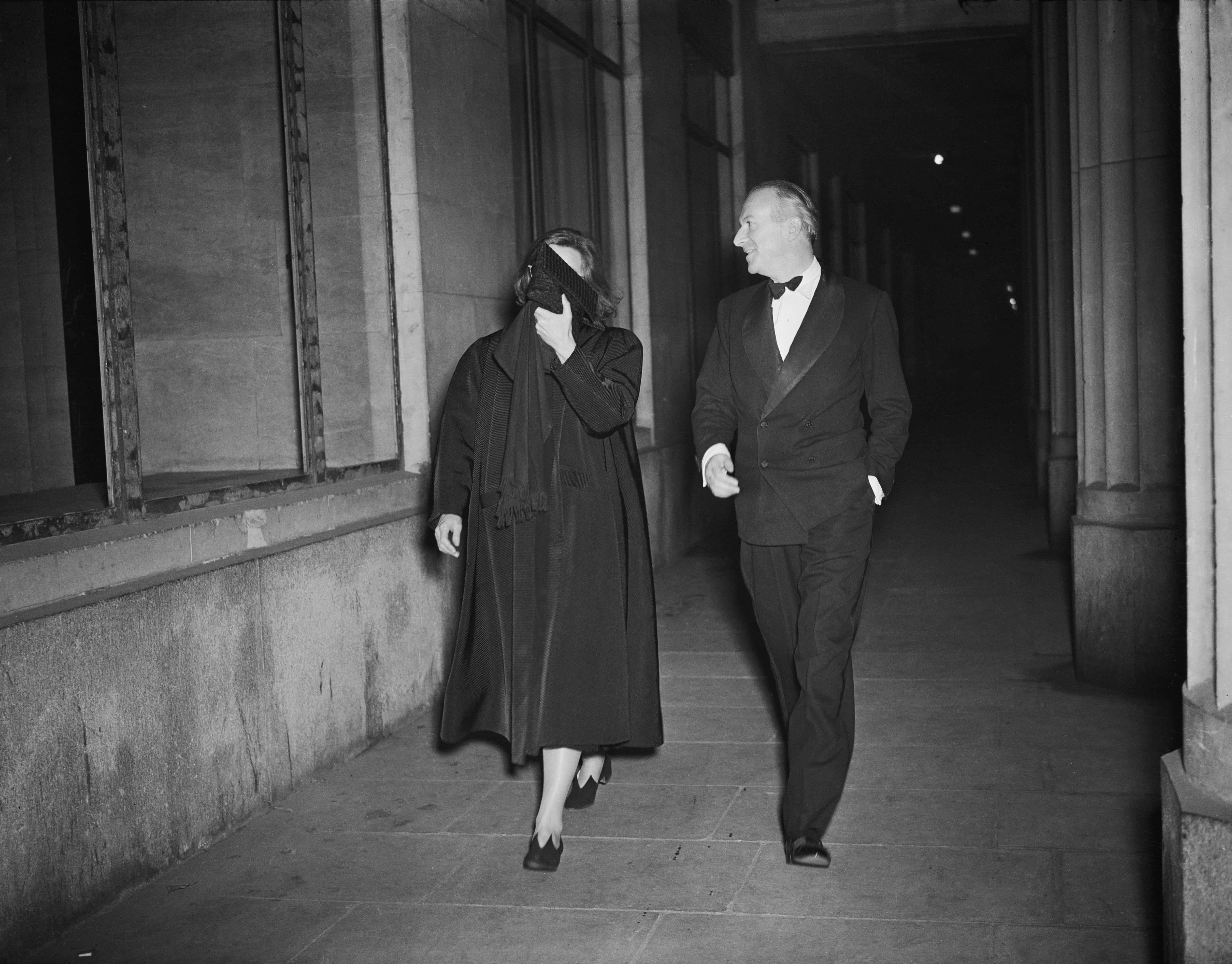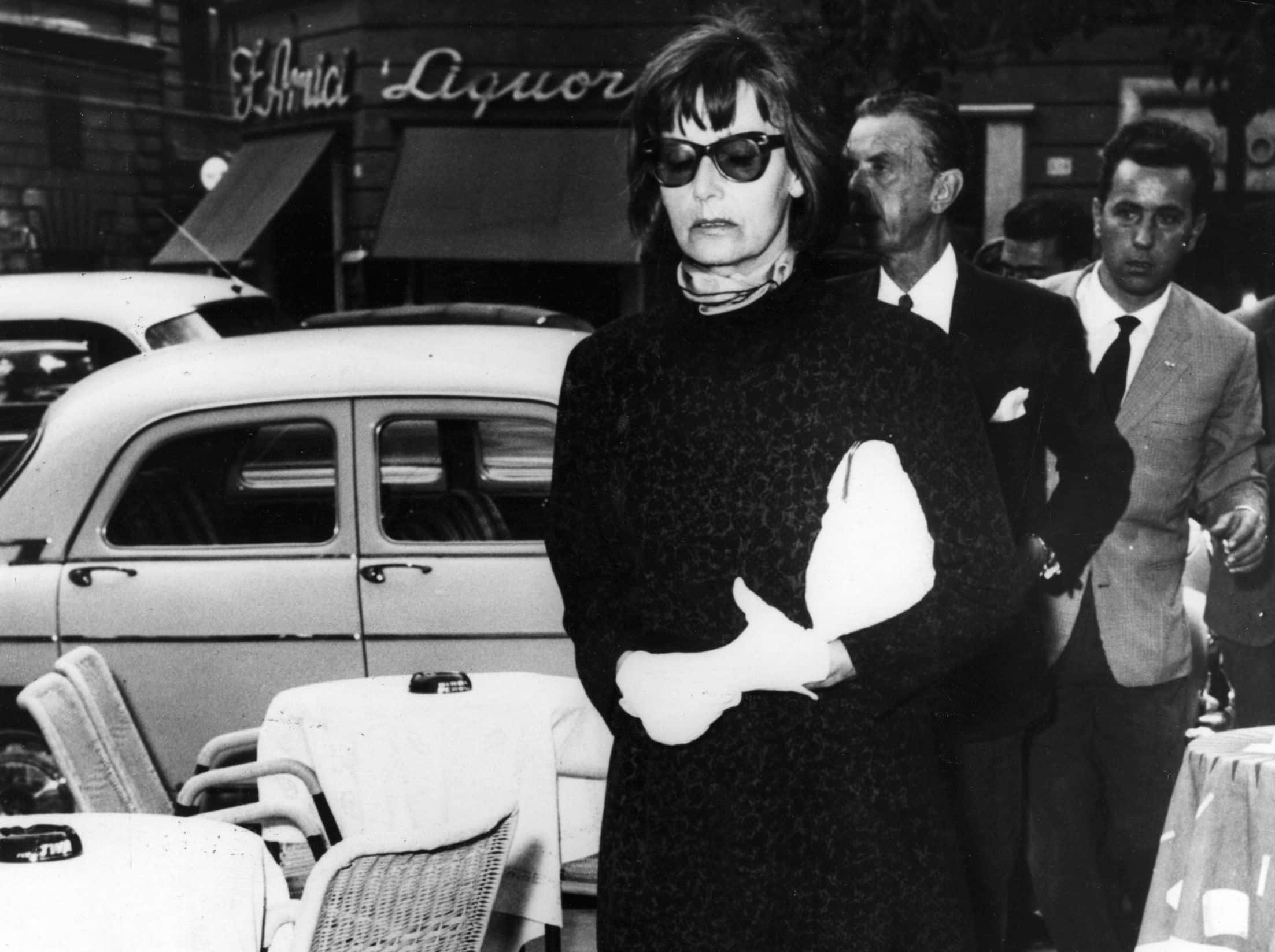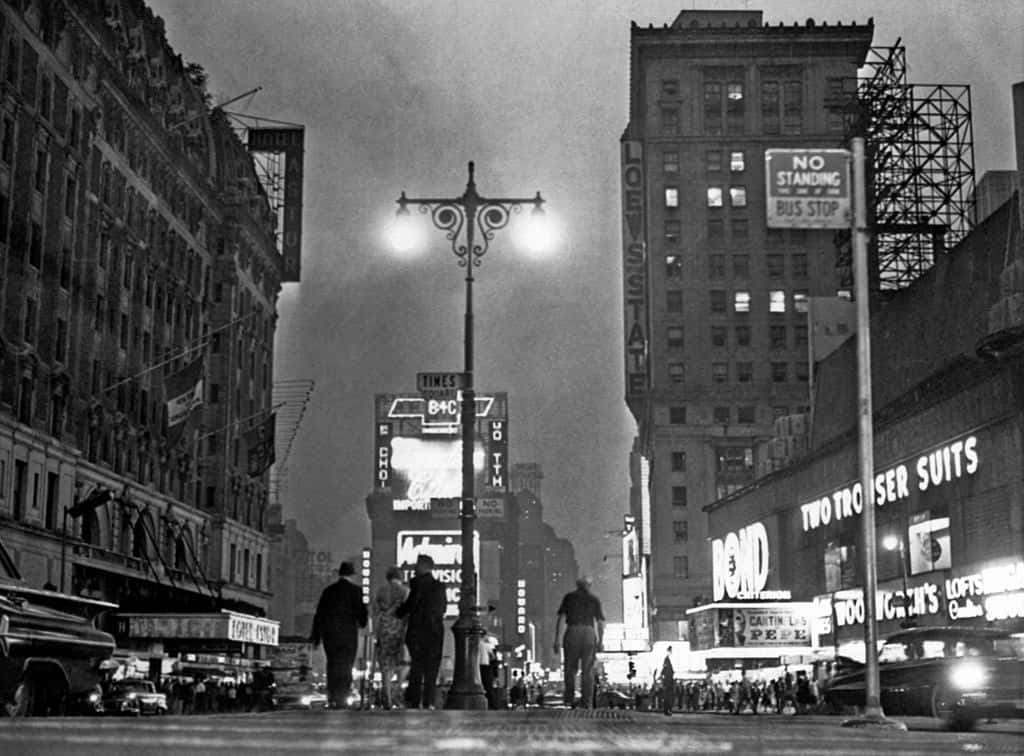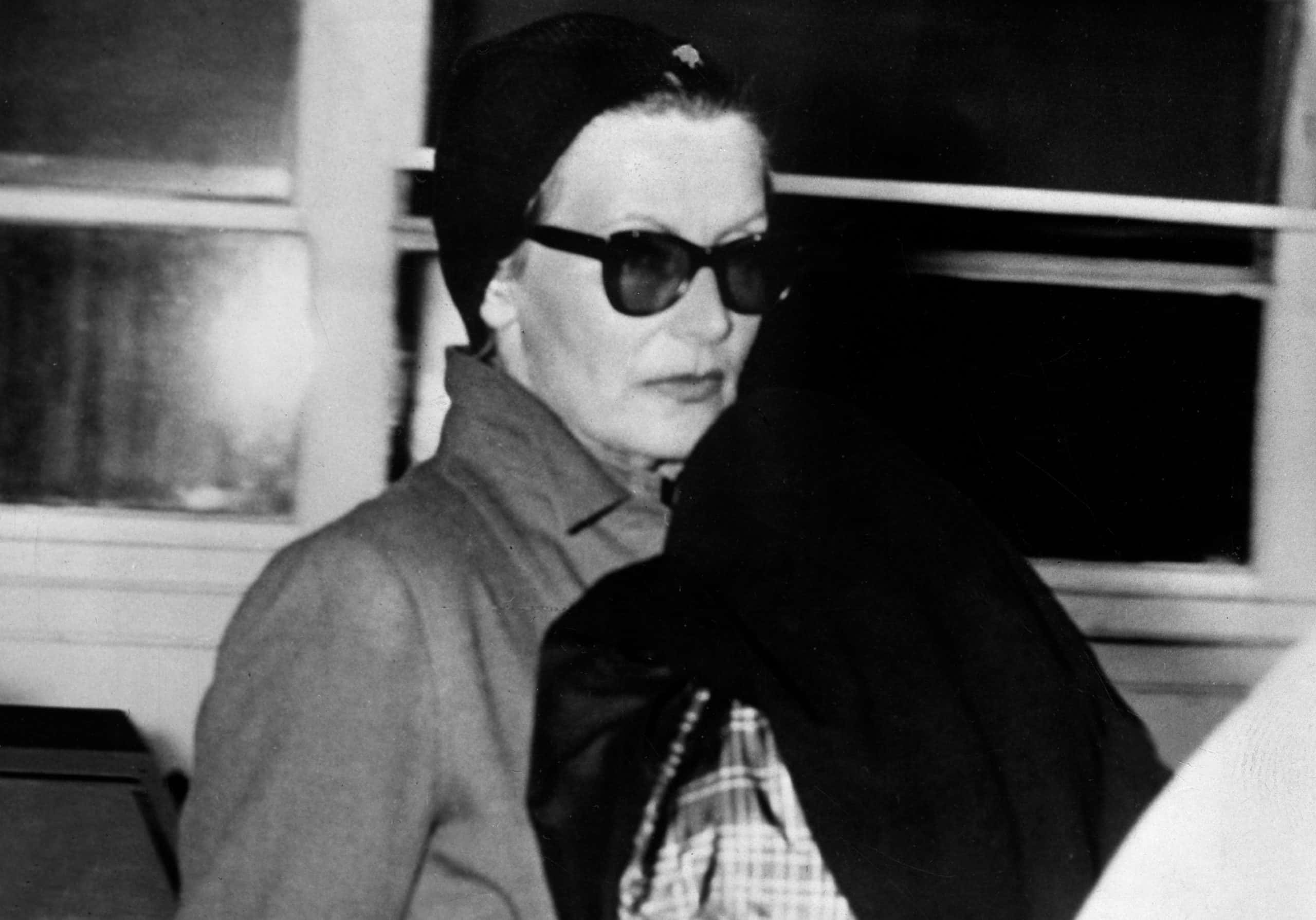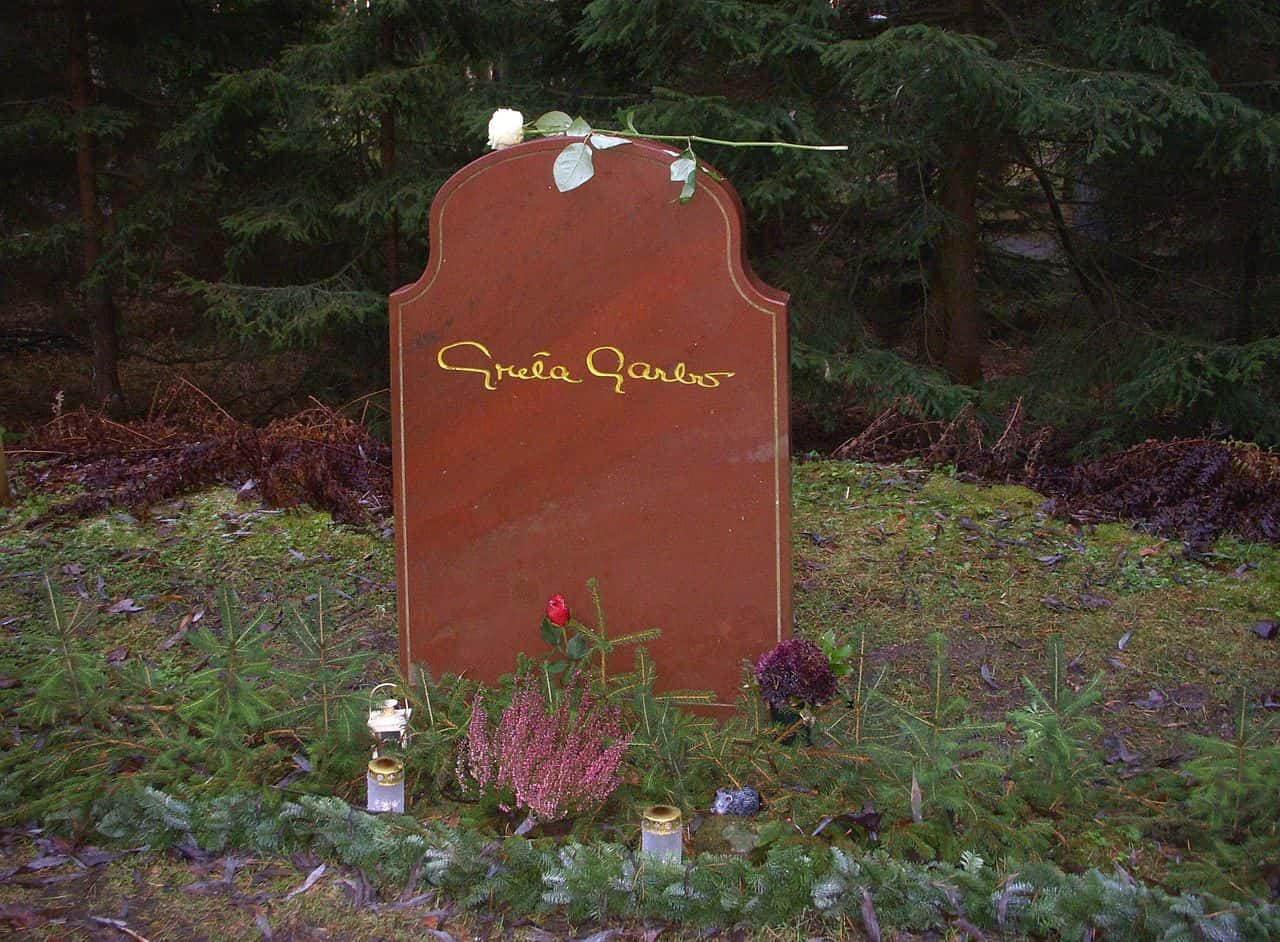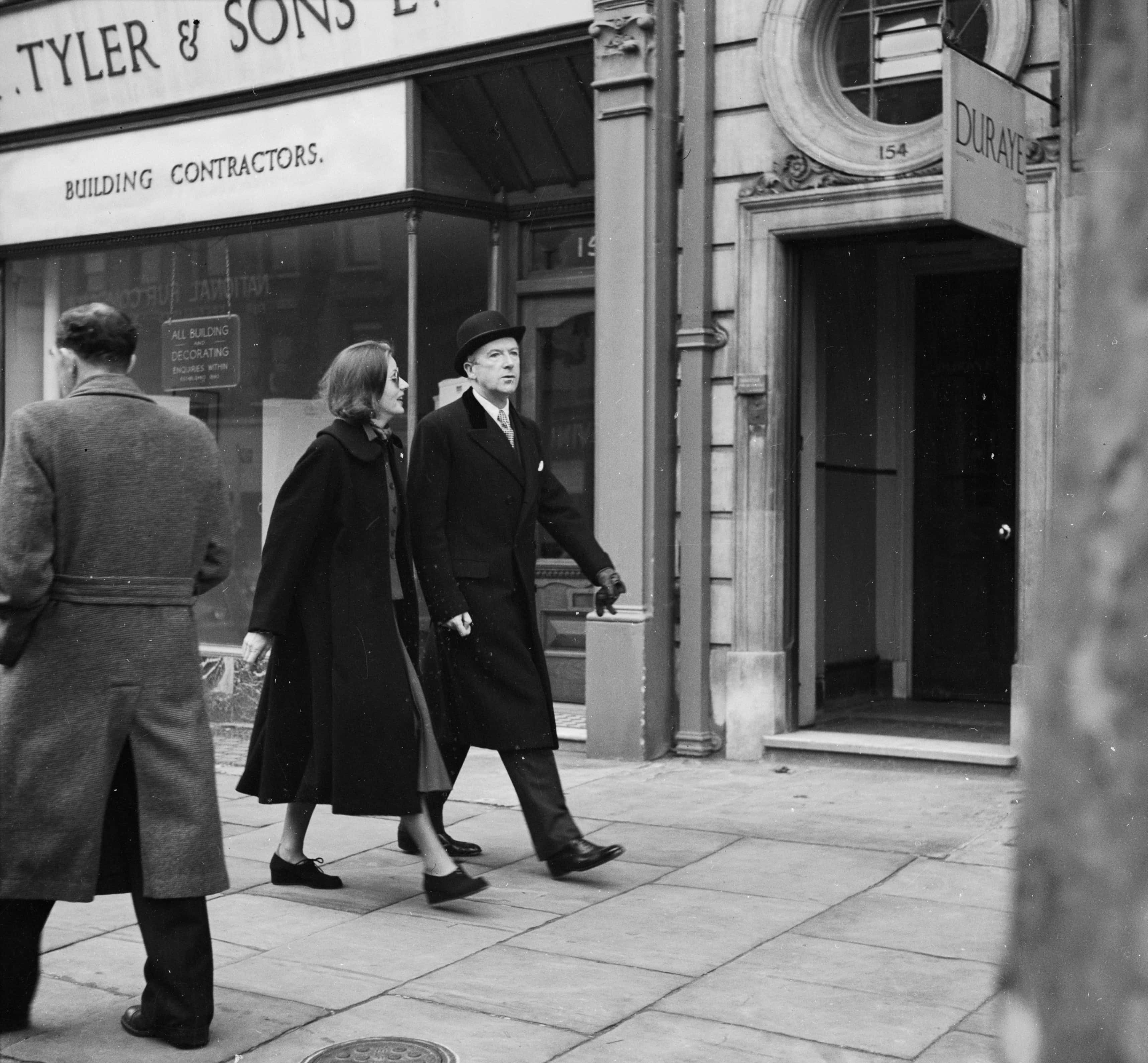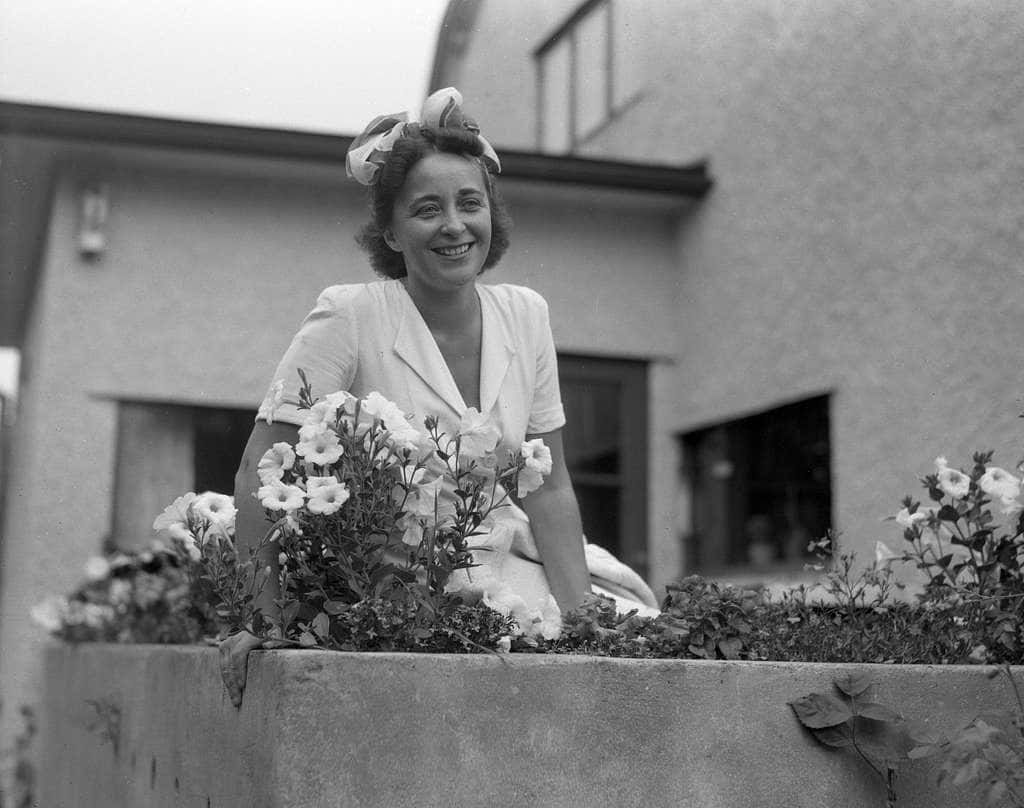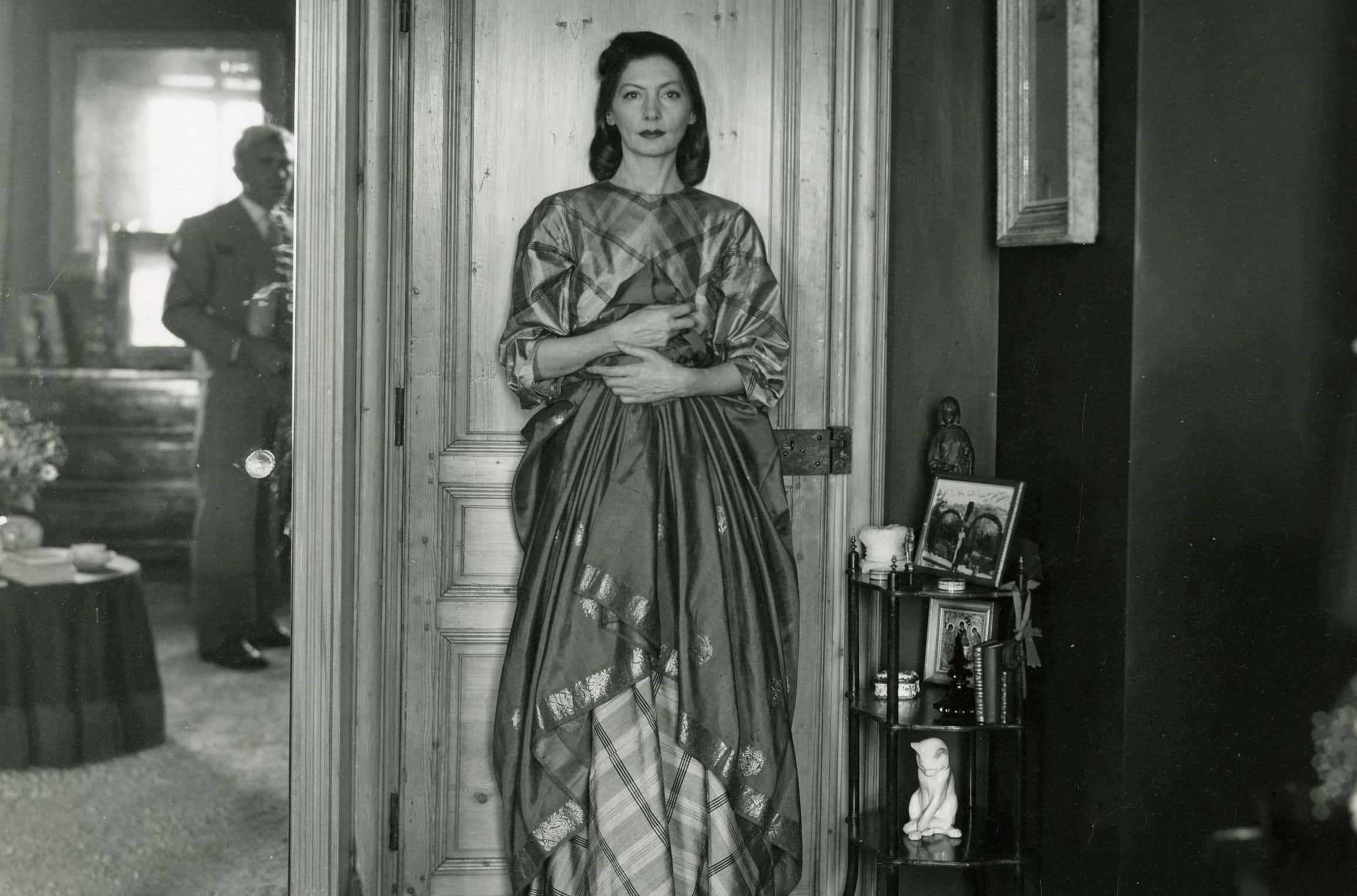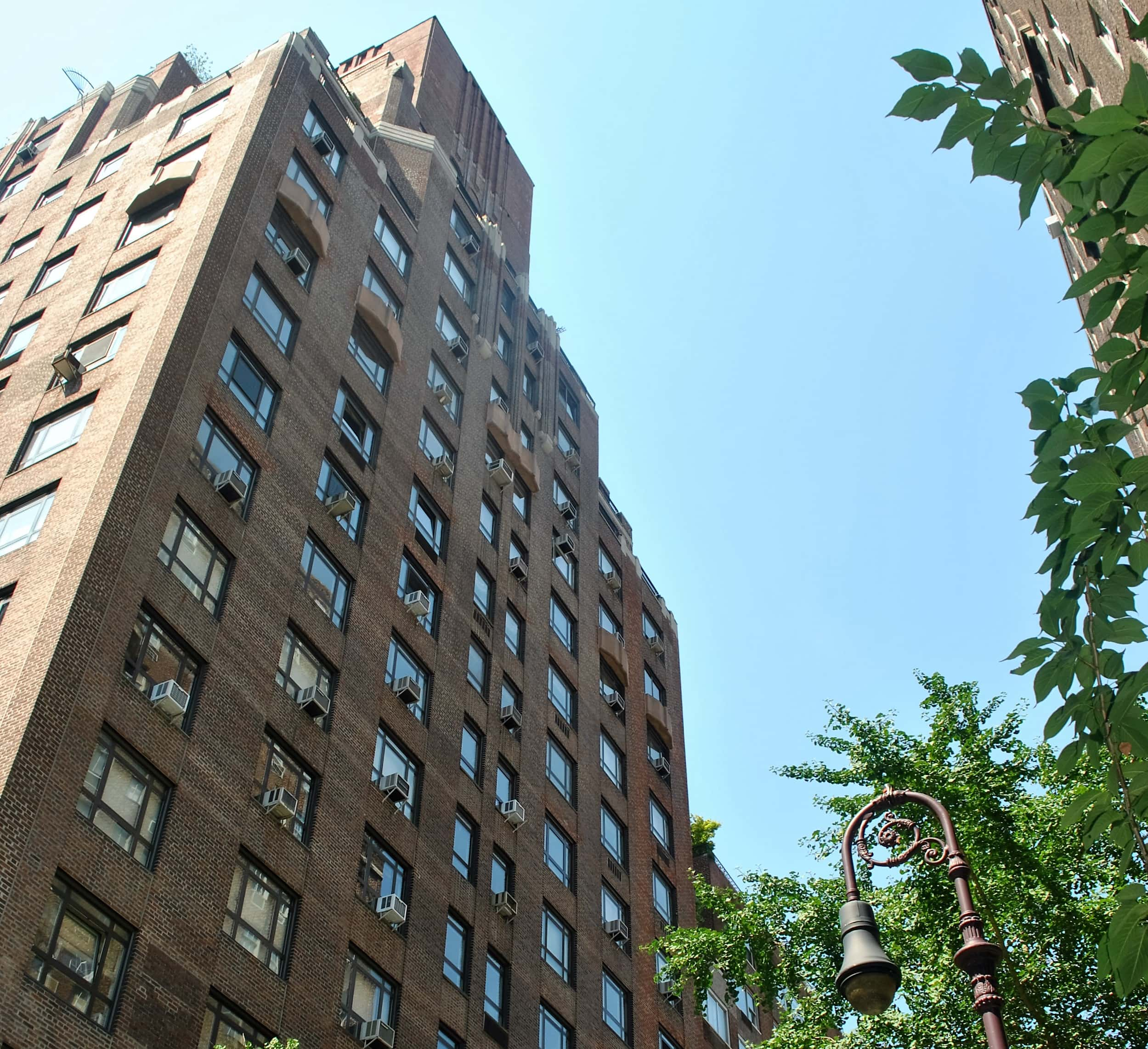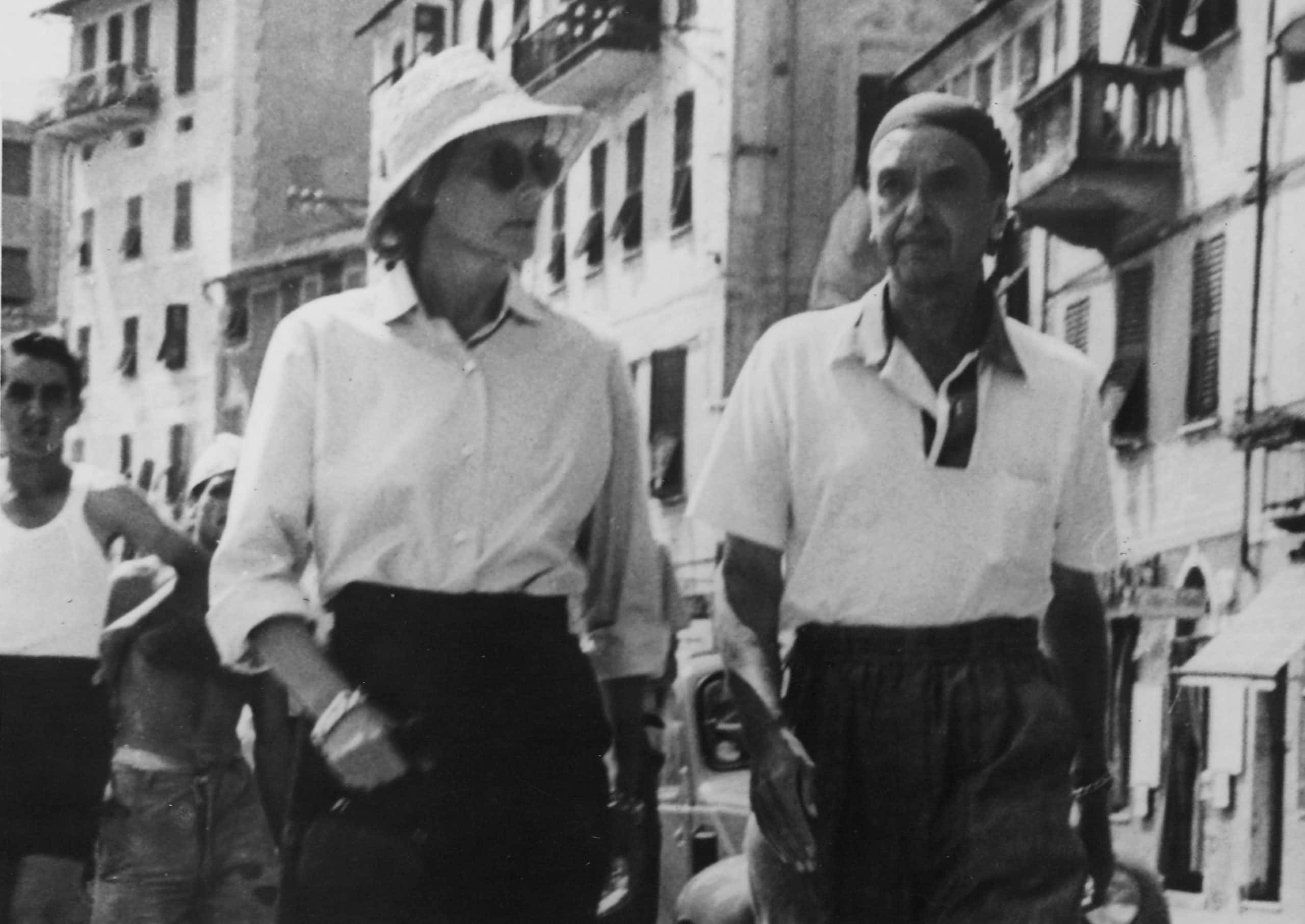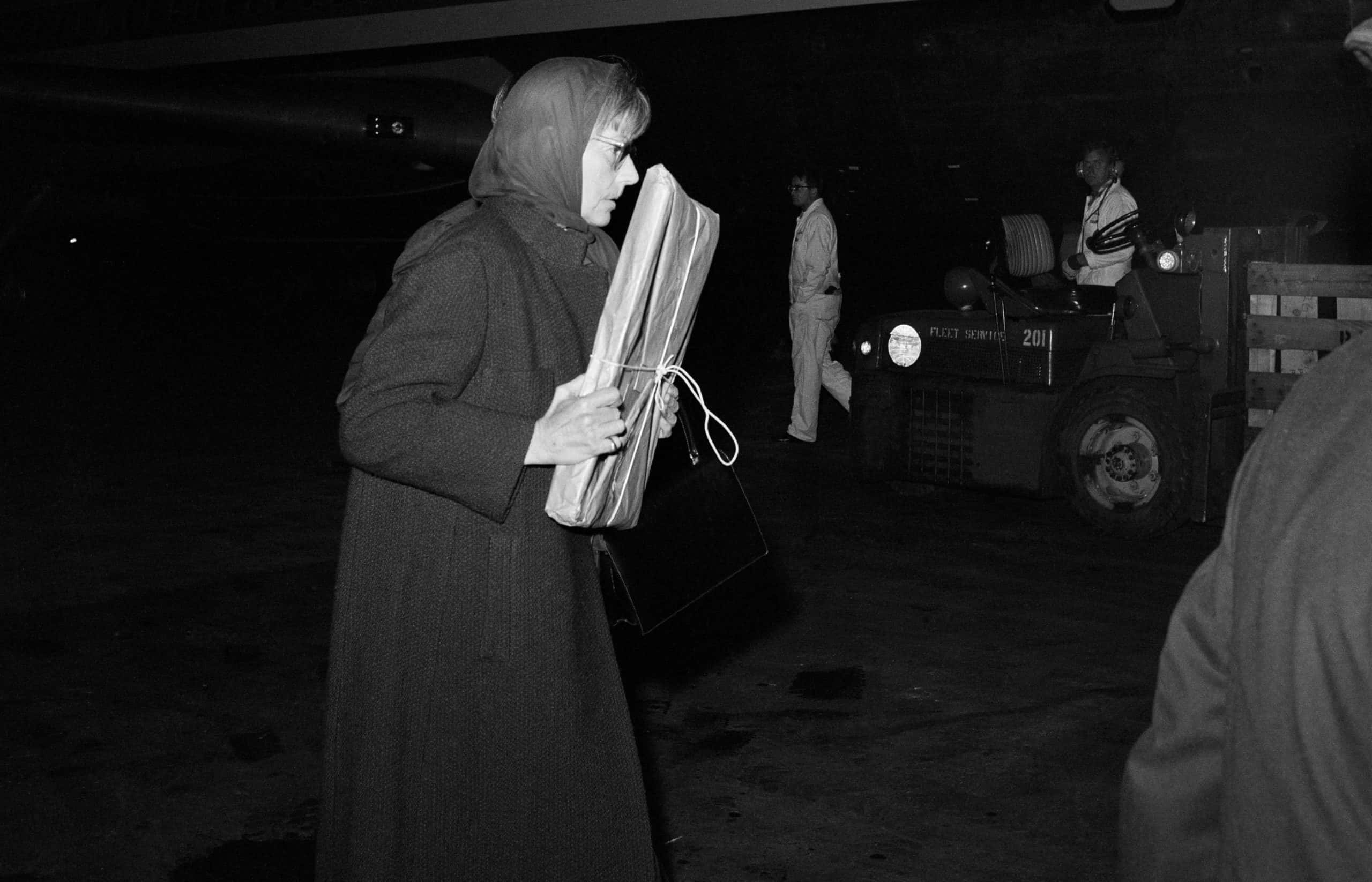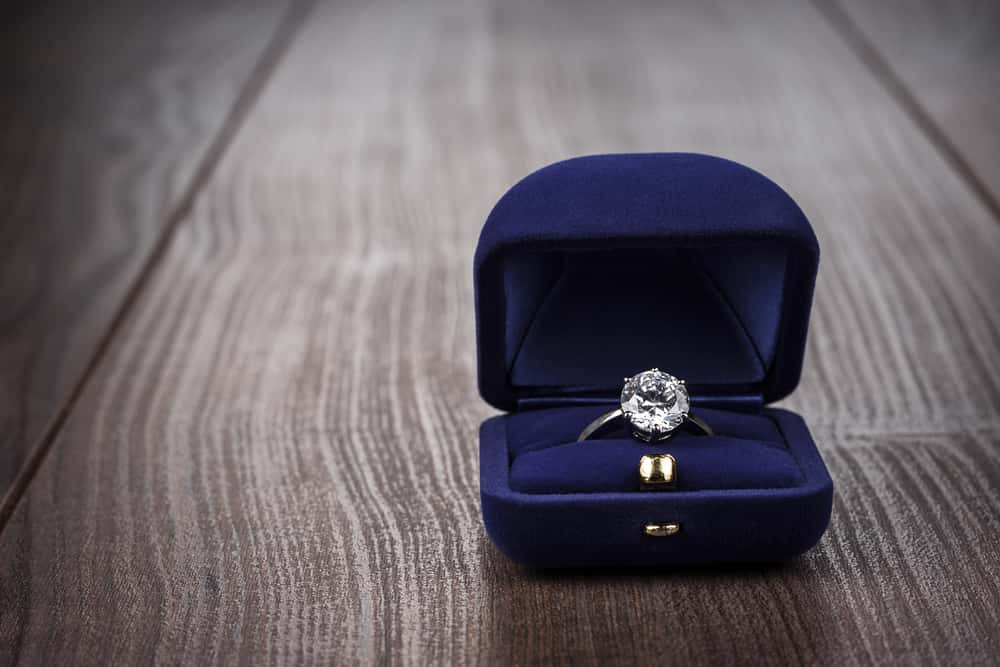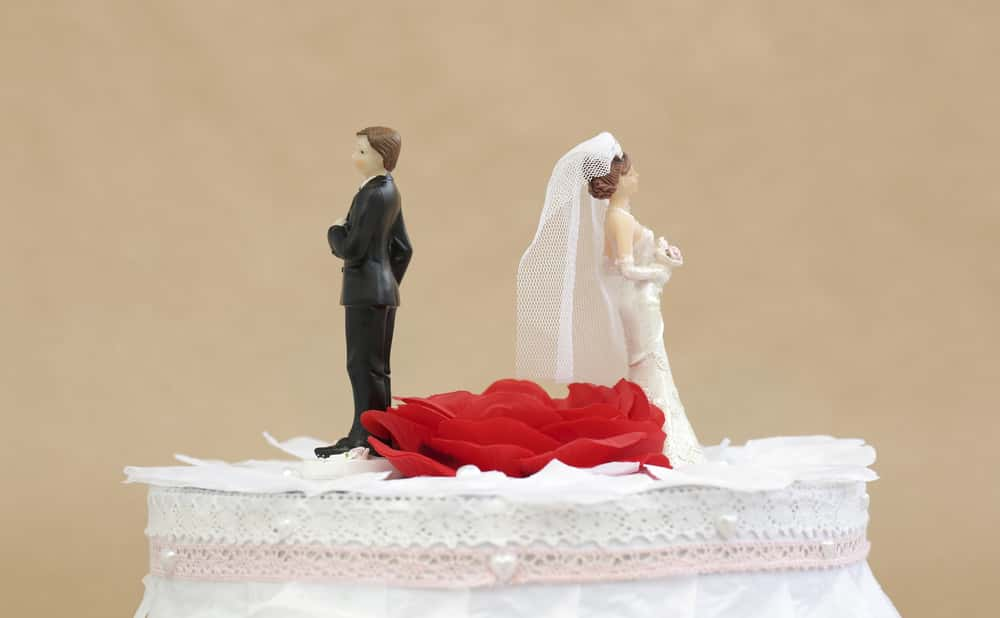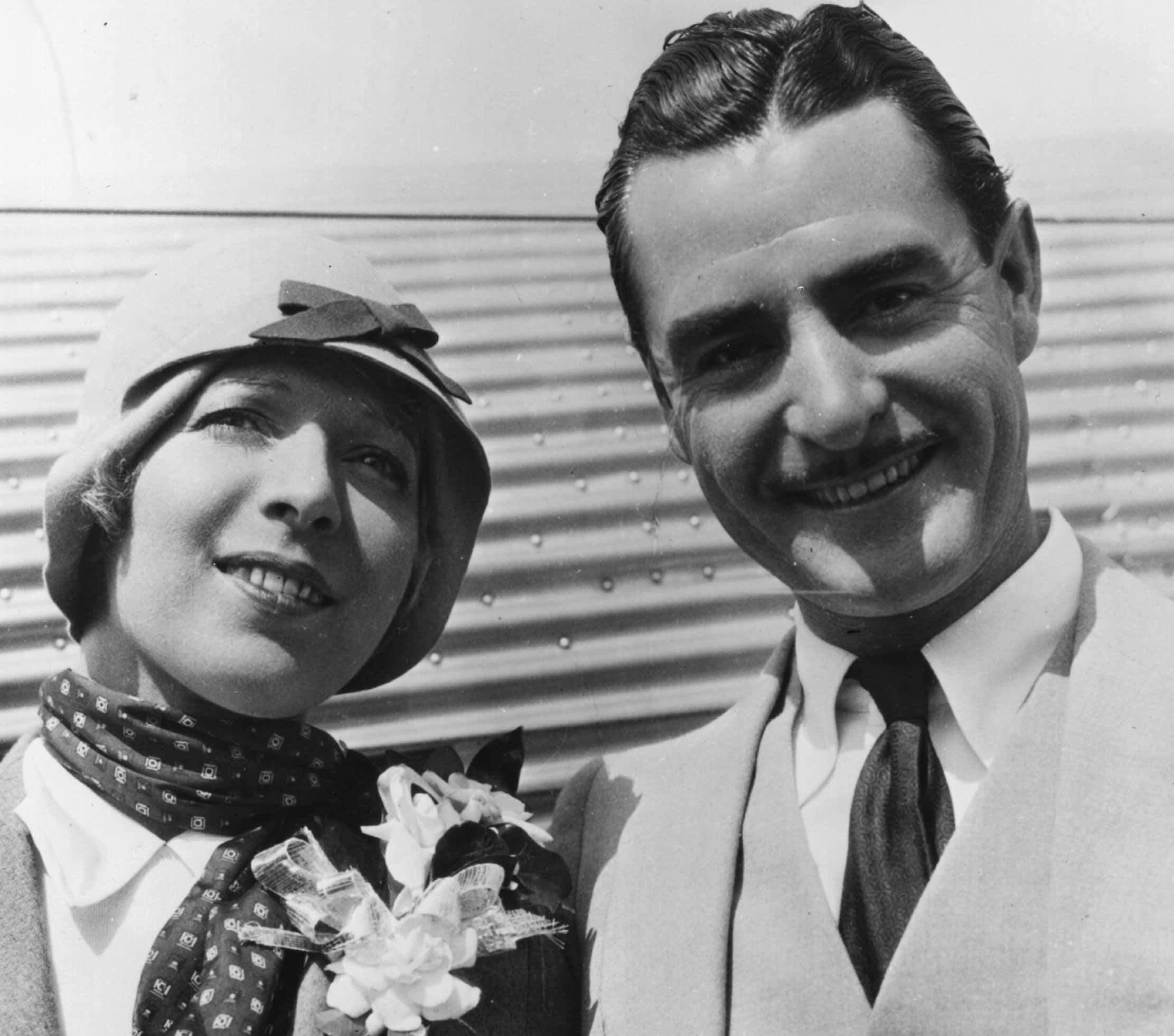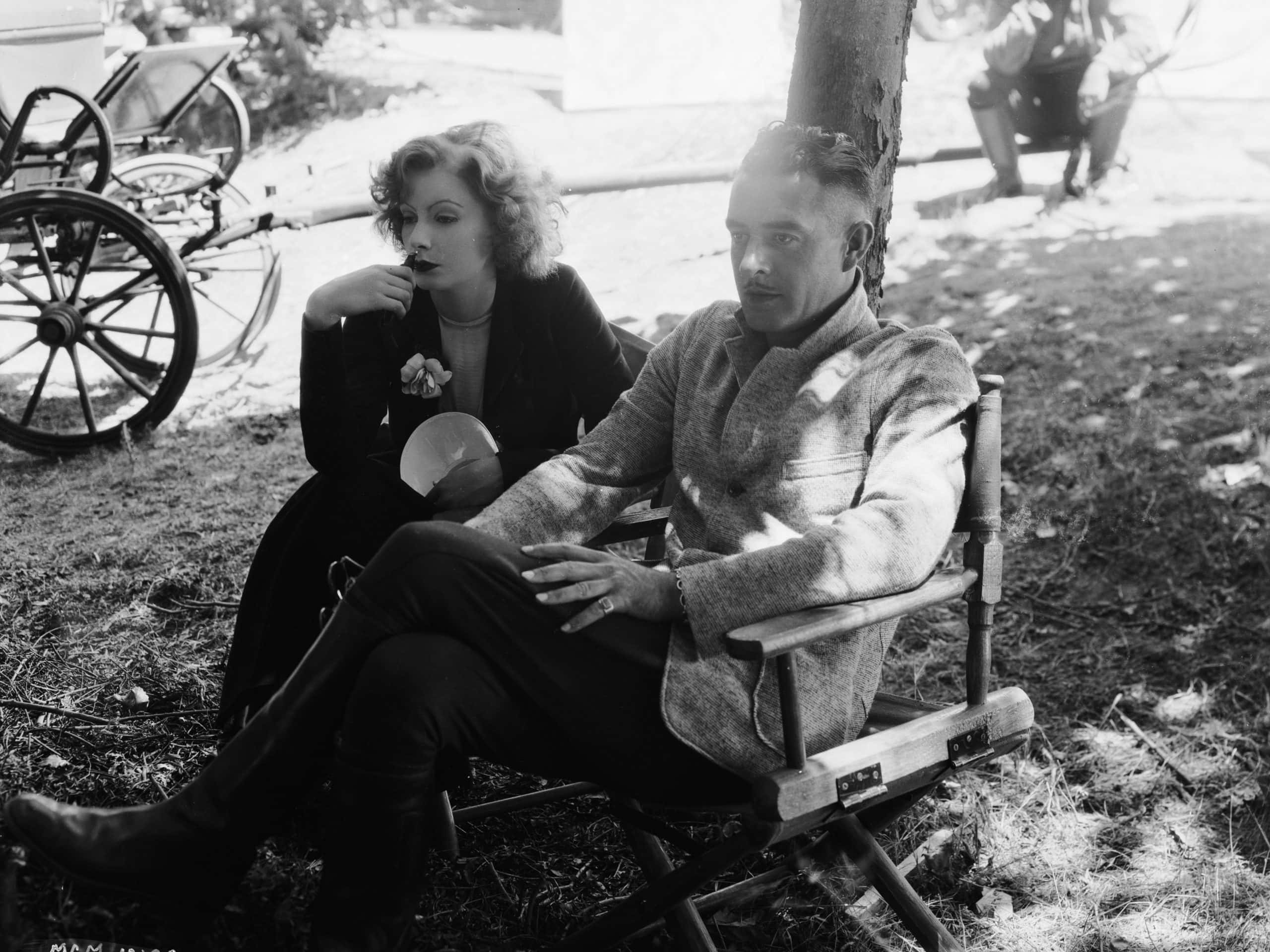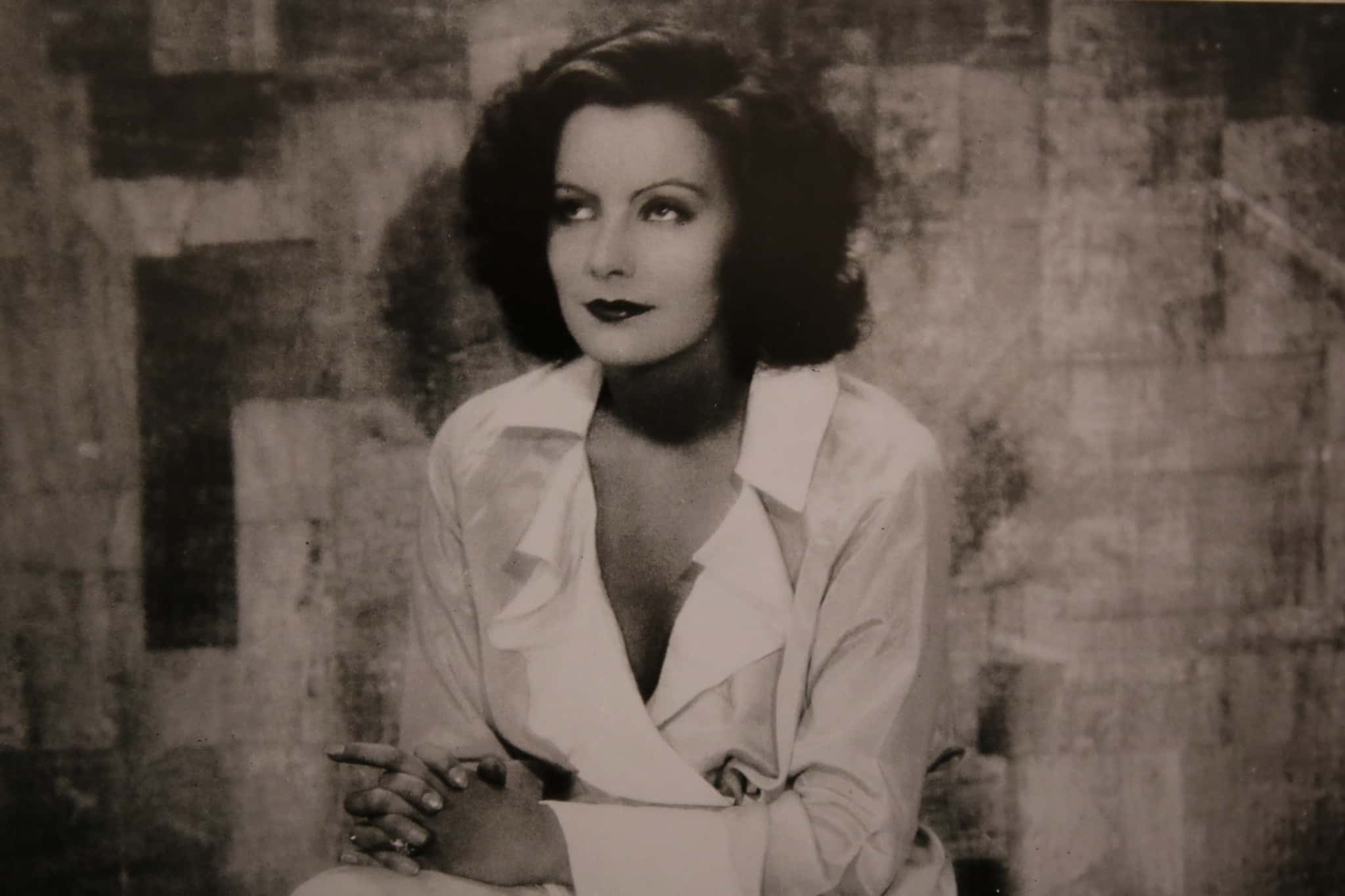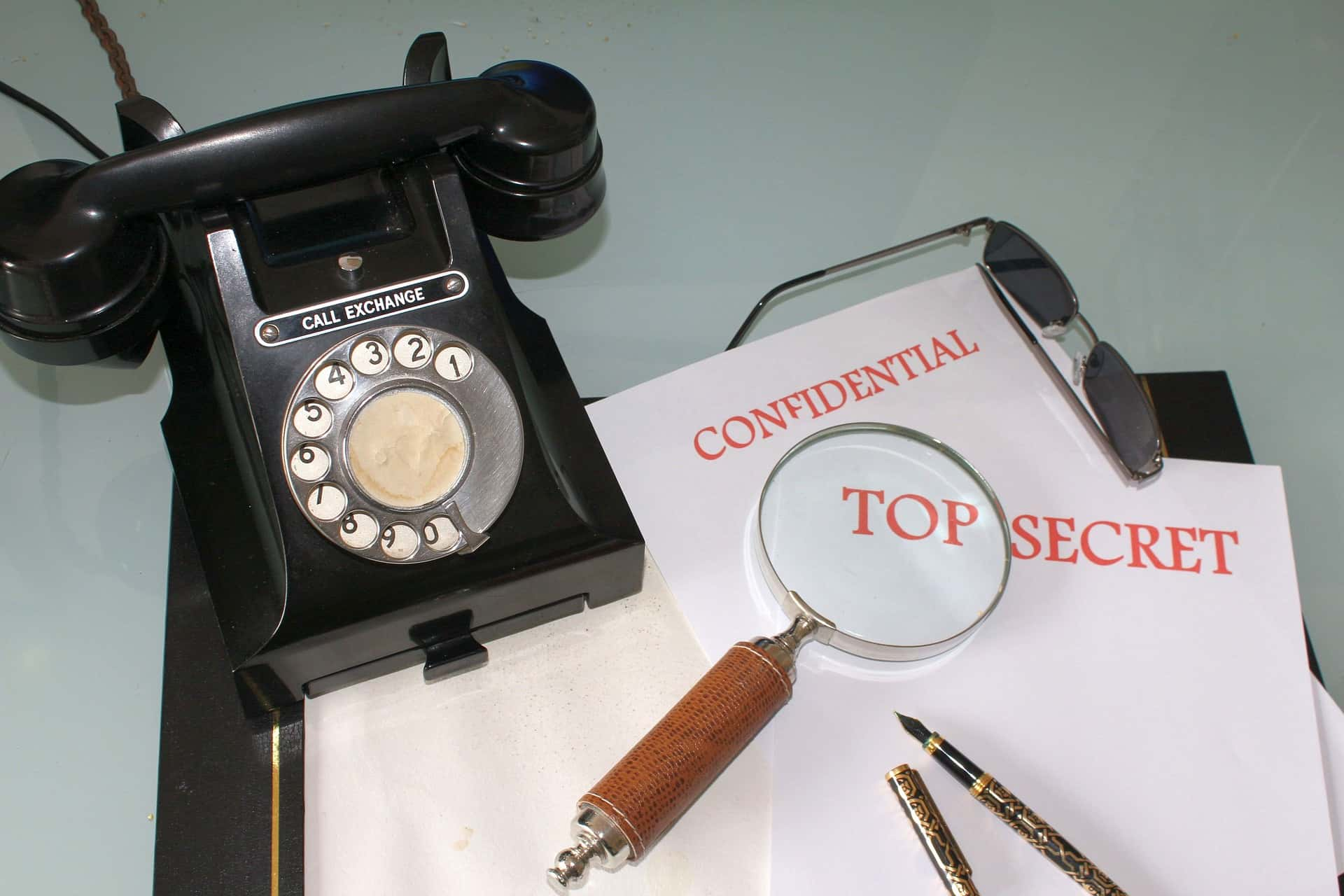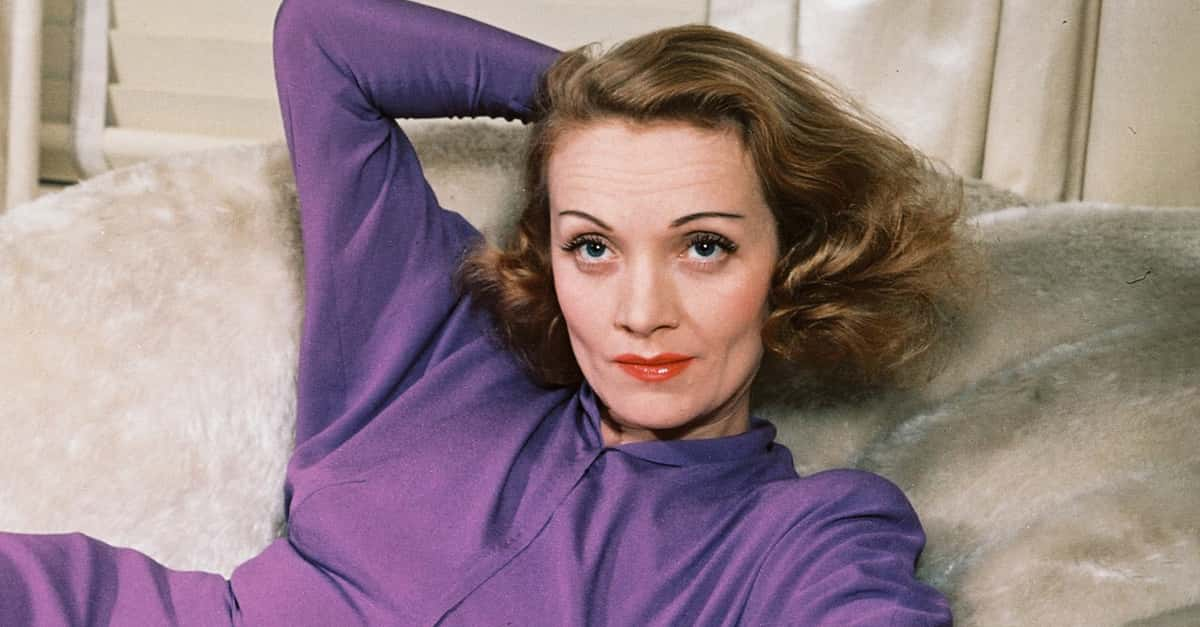La Divina. The Face. The Swedish Sphinx. Greta Garbo went by many names, but her beautiful visage hid a multitude of secrets. The ever-mysterious Garbo hypnotized audiences with her sultry voice and breathtaking beauty. And behind the private and moody public persona that she became known for, she lived a life full of both scandal and tragedy. Here are glamorous facts about Greta Garbo.
1. She Had A Humble Upbringing
The woman who came to be known simply as “Garbo” was born Greta Lovisa Gustafsson, to a working-class family in the slums of Stockholm, Sweden. With three kids, the Gustafssons struggled desperately to ends meet. It’s no wonder that Garbo became known for playing tragic, melancholic characters on screen—she was drawing on her own woeful childhood experience, and the extreme poverty was just the start of it.
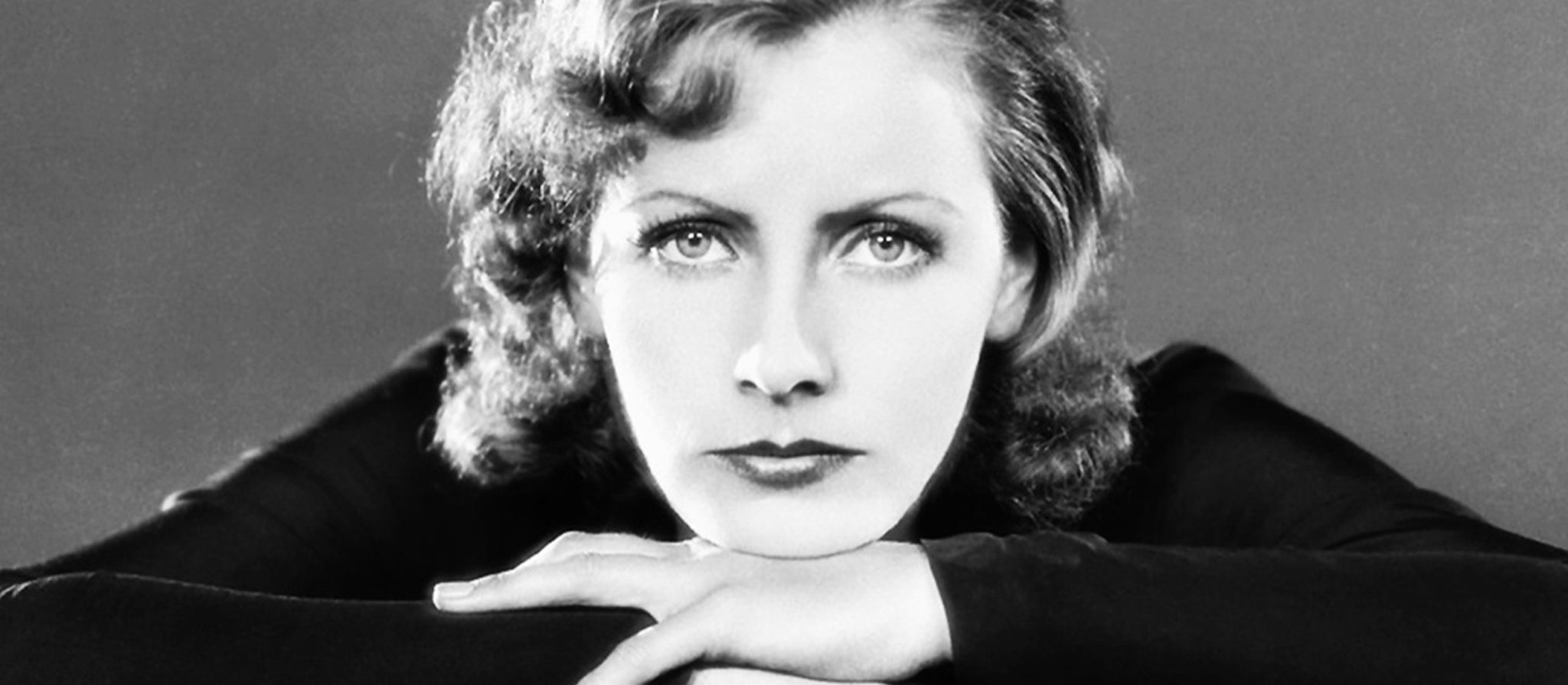
2. They Lived On The Edge
Greta Garbo described her childhood as a time of extreme anxiety, where she and her siblings sat in silence, lest they disturb their father as he scanned the newspaper for jobs, or their mother as she worked to repair old clothes, since they couldn’t afford new ones. Luckily, Garbo had an outlet—she discovered a love for theater at a young age, as did her sister.
Sadly, even their shared passion couldn’t save them from the bitter tragedy that awaited them.
3. She Was Embarrassed By Her Roots
Garbo’s parents worked tirelessly as she and her two siblings attended a nearby school. At 13, she graduated, but her parents didn’t have enough money for her to continue to high school. For the rest of her life, she carried the weight of that decision. Garbo later confessed that she felt inadequate compared to many of her peers in Hollywood, who had attended high school and university.
The Gustafssons were so poor, it’s like they were living on a razor wire where one misstep could ruin everything—and eventually, it did.
4. Everything Changed In An Instant
Despite the tense atmosphere in the Gustafsson household, Garbo was incredibly close with her family, especially her father—but in 1919, a catastrophe struck that would uproot her entire world. Garbo’s father was suffering from a terrible illness, which left him unable to work. He lost his job and required extensive treatment for his kidnaps. Young Greta stepped up to help him—and her efforts were heartbreaking.
5. She Lost Him
Every week for an entire year, Greta Garbo would take her father on the long journey to a charity-run clinic, where she’d sit with him as he endured hours of treatment. Sadly, her effort was all for naught. The illness and the treatments had ravaged his body, and when she was only 14 years old, he passed on. The loss utterly devastated Garbo, but it also compelled her to persist throughout the years of struggle that followed.
6. Her Work Changed Her Life
After the loss of her father, Garbo’s family was left without a primary breadwinner, so she went straight to work, first in a barbershop and then in a department store. That was when Garbo found the avenue that would both take her back to her teenaged passion and allow her to support her family. The department store used Garbo as a model in a print ad, then in a publicity short. Finally, things were looking up—but her ordeal wasn’t over yet.
7. She Finally Got A Break
After seeing one of her ads, a director cast 17-year-old Garbo in a short film called Peter the Tramp. From there, she was able to get a scholarship at the Royal Dramatic Theatre’s Acting School. At the same time, her older sister Alva, who shared her passion for acting, was finding some success in films as well. It should’ve been a time of much-needed joy for the family—but fate had other things in store for the Gustafssons.
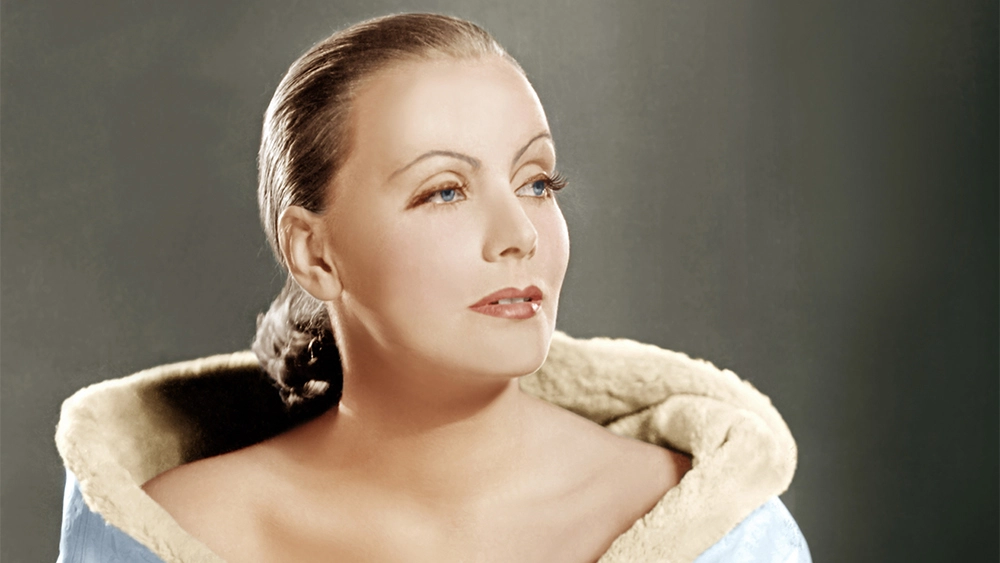
8. They Discovered Each Other
Hollywood is filled with stories of directors and casting agents “discovering” young starlets working in drugstores or as catalog models. Well, Garbo and the director who became her mentor found each other. She’d approached Mauritz Stiller for a screen test, but he’d politely rejected her—only to hear about her work at the Royal Dramatic Academy a few years later and cast her as the lead in The Saga of Gösta Berling.
After that, Stiller became her Svengali figure, dictating all aspects of her career. He was the one to insist that she discard the Gustafsson in favor of the more glamorous moniker of “Greta Garbo.” But he was also a little too controlling.
9. She Turned The Tables On Him
Without Mauritz Stiller, it’s entirely likely that Greta Garbo might never have become a star—but their relationship had a disturbing dark side. Stiller criticized Garbo harshly for her weight, and he wasn’t the only one. He was also domineering, and prone to either barking orders at her or completely ignoring her. On set, he would yell at her in front of the crew until she was in tears.
Stiller’s publicly stated aim was to break Garbo down until she became the woman he wanted her to be. Instead of letting it destroy her, Garbo became finely attuned to his moods and learned how to play Stiller like a fiddle. After all, he would be far from the last difficult man that she would encounter.

History's most fascinating stories and darkest secrets, delivered to your inbox daily.
10. Hollywood Didn’t Want Her
At this point, Greta Garbo and Mauritz Stiller were inextricably linked. Not only was he her mentor, but he was also acting as her manager and making ridiculous demands of any director who wanted to hire Garbo. Then, movie mogul Louis B. Mayer came knocking—but he wasn’t looking for her. Mayer wanted Stiller to come to Hollywood and direct there, but Stiller said that he was a package deal with Garbo.
Mayer’s reaction was chilling. He claimed that Garbo was too fat for American audiences and that she’d never be a star. However, Stiller insisted that Mayer hire them both, and he eventually said yes.
11. They Abandoned Her
After a harrowing ten-day journey to the US by boat, Garbo arrived in New York City with Stiller, ready to become the next big thing(s) in Hollywood—but they were in for a devastating surprise. Garbo and her mentor waited for Mayer and MGM to contact them and tell them what the next steps were…and waited…and waited. For two months. She later claimed that it was the most miserable period of her life—but it was just the start of her ordeal.
12. She Found Her Own Way
After a sweltering summer in New York City waiting for a call that never came, a frustrated Garbo and Stiller made their own way to Los Angeles. There, Garbo waited again for word from MGM, this time for five weeks. She was at her wit’s end and wrote home that she was on the verge of coming back to Sweden. Finally, she came up with an ingenious plan.
She went over Mayer’s head and got a friend to arrange a screen test with another MGM exec, who was suitably impressed. The studio began grooming her as they did all their stars—fixing her teeth, putting her on a strict diet, and, in her case, arranging for English lessons. It paid off.
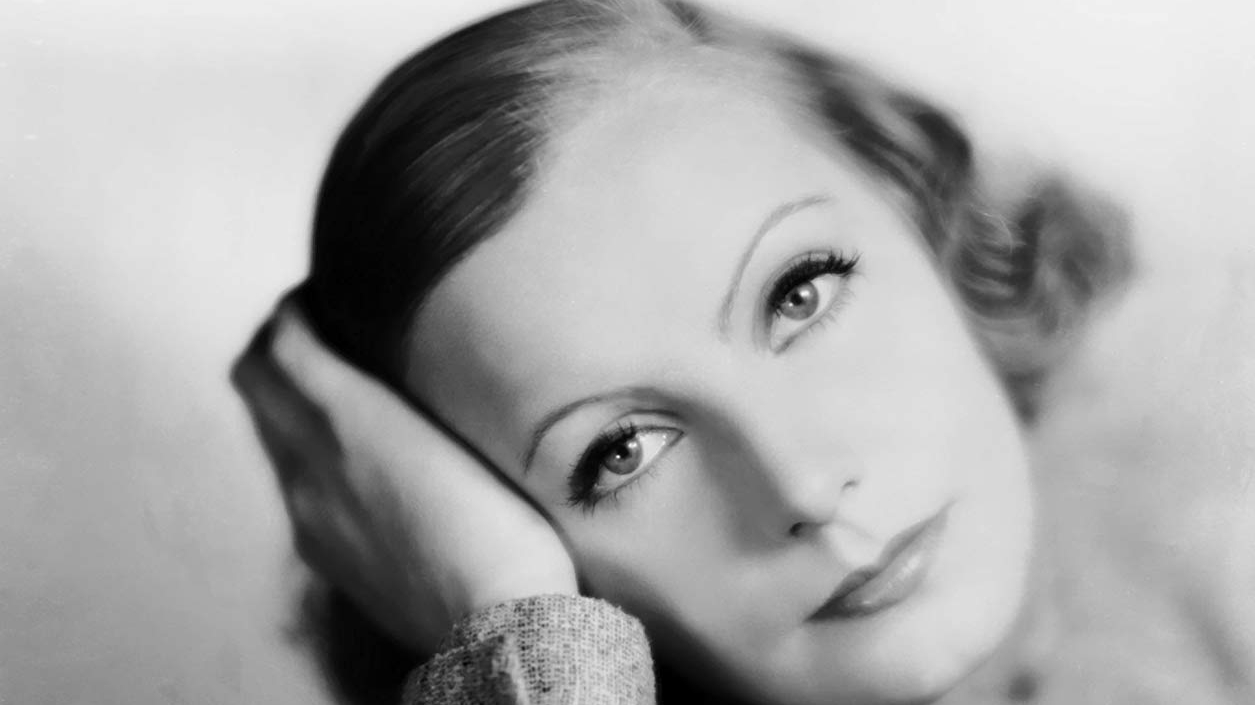
13. It Was All Too Much
Filming The Temptress was a huge milestone for Garbo, but it was also exhausting. She was caught in between the demands of the studio and Stiller, her ever-present mentor, who was also directing the picture. Then, one day on set, Stiller delivered a telegram to Garbo from her family back home. When she read it, she collapsed.
14. She Lost Her Twin Flame
The telegram carried devastating news from Sweden. Garbo’s older sister Alva had passed. Doctors had diagnosed her with cancer, and the decline had been incredibly quick. Garbo hadn’t even known she was sick. The loss was devastating—but her nightmare was just beginning. The studio refused to let Garbo return to Sweden for the funeral. She was furious—and she let it show.
15. It All Shattered
At that point, Garbo must have felt like the studio was personally trying to mess with her. While she’d clashed with Stiller plenty, they were still incredibly close. Then, out of the blue, MGM fired Stiller from The Temptress. Garbo was torn between her loyalty to him and the fact that the studio held her career in its metaphorical hand. This was when the glittery façade of Hollywood faded for Garbo, and she began to see it for what it was—a place that chewed up and spit out people like her and Stiller.
16. She Shot Back
Greta Garbo was heartbroken, but the successive blows of her sister’s passing and her mentor’s firing had also hardened her. When MGM told Garbo that they were planning her next project, a film called Flesh and the Devil, her reaction surprised even the most seasoned studio moguls. She was still angry and disillusioned with them, and she refused to appear in it—and it nearly cost her everything.
After a few bitter notes warning of “dire consequences” should she refuse again, she reluctantly agreed to appear in the film. Things were tense, and Garbo needed a release valve. Soon enough, she found one.
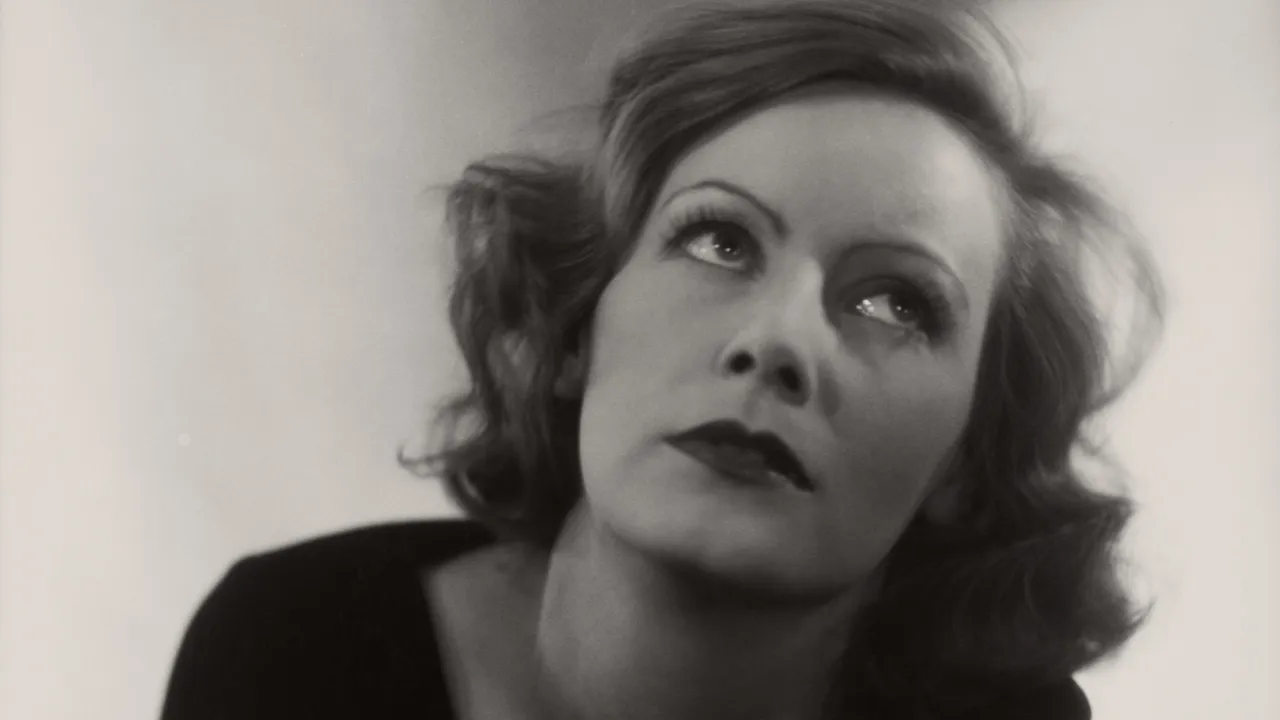
17. They Fell Fast
For Flesh and the Devil, MGM had cast Garbo as the romantic lead opposite veteran actor John Gilbert. Director Clarence Brown immediately noticed that they had chemistry to burn—and they weren’t wasting it in their downtime either. Garbo and Gilbert jumped headlong into a passionate affair, and before filming was even over, they were cohabitating. He was exactly what she needed—at first.
18. He Taught Her How To Survive
Gilbert was a warm and hearty foil for Garbo’s ice-cold demeanor on screen, but behind the scenes, he became a formidable stand-in for her old mentor, Mauritz Stiller. Not only did Gilbert help Garbo become a better actor, but he also taught her how to navigate Hollywood—from how to properly schmooze at parties to how to deal with difficult studio heads.
Garbo was a willing pupil, and his lessons were apparent in how she steered her career in the years afterward.
19. They Couldn’t Keep Their Hands Off Each Other
Just how steamy was the romance between Greta Garbo and John Gilbert? Well, one story about their passion became Hollywood legend. While filming a love scene for Flesh and the Devil, they were going at it so ardently that director Clarence Brown refused to say cut. Instead, he slowly had the lights cut and ushered the crew off of the set one by one.
A few hours after vacating the scene, he had dinner sent to the couple. Yup, they were that into each other.
20. She Became A Bona Fide Star
Flesh and the Devil was a massive success—and a complete game-changer for Garbo. Where she’d unsuccessfully pushed back against the studio before, she now had leverage. With just one hit film under her belt, she became their highest-paid star. Still, you can only work with what you have, and all that MGM had was utter garbage.
21. They Were IN LOVE
The on and off-screen love affair between Garbo and Gilbert had created scores of breathy headlines and good publicity for MGM. The studio knew that they had to team the couple up again, and play up their chemistry even more. They chose to do it in the cheesiest way possible. A screenwriter butchered Anna Karenina into submission, which they then filmed—but that’s not the bad part, this is: MGM renamed it Love so the poster could read “Greta Garbo and John Gilbert in LOVE.”
However, it could’ve been worse! They’d originally titled it Heat. Me-ow.
22. She Lost A Friend
While Gilbert had seemed to have replaced Mauritz Stiller as Garbo’s de facto mentor, Garbo and Stiller had remained close. And the two weren’t just a dynamic duo—actor Einar Hanson, who had been a romantic lead for Garbo in her first films, had been with them all the way up. They remained close while living in Hollywood—until one day, when Stiller had a disturbing premonition.
He told friends that he saw Hanson dying in a car crash—and sadly enough, it all came true. In 1927, Hanson lost his life in an accident after leaving a dinner party the studio had thrown for Garbo. He’d been one of her oldest friends in Hollywood, and she was heartbroken—but the worst was yet to come.
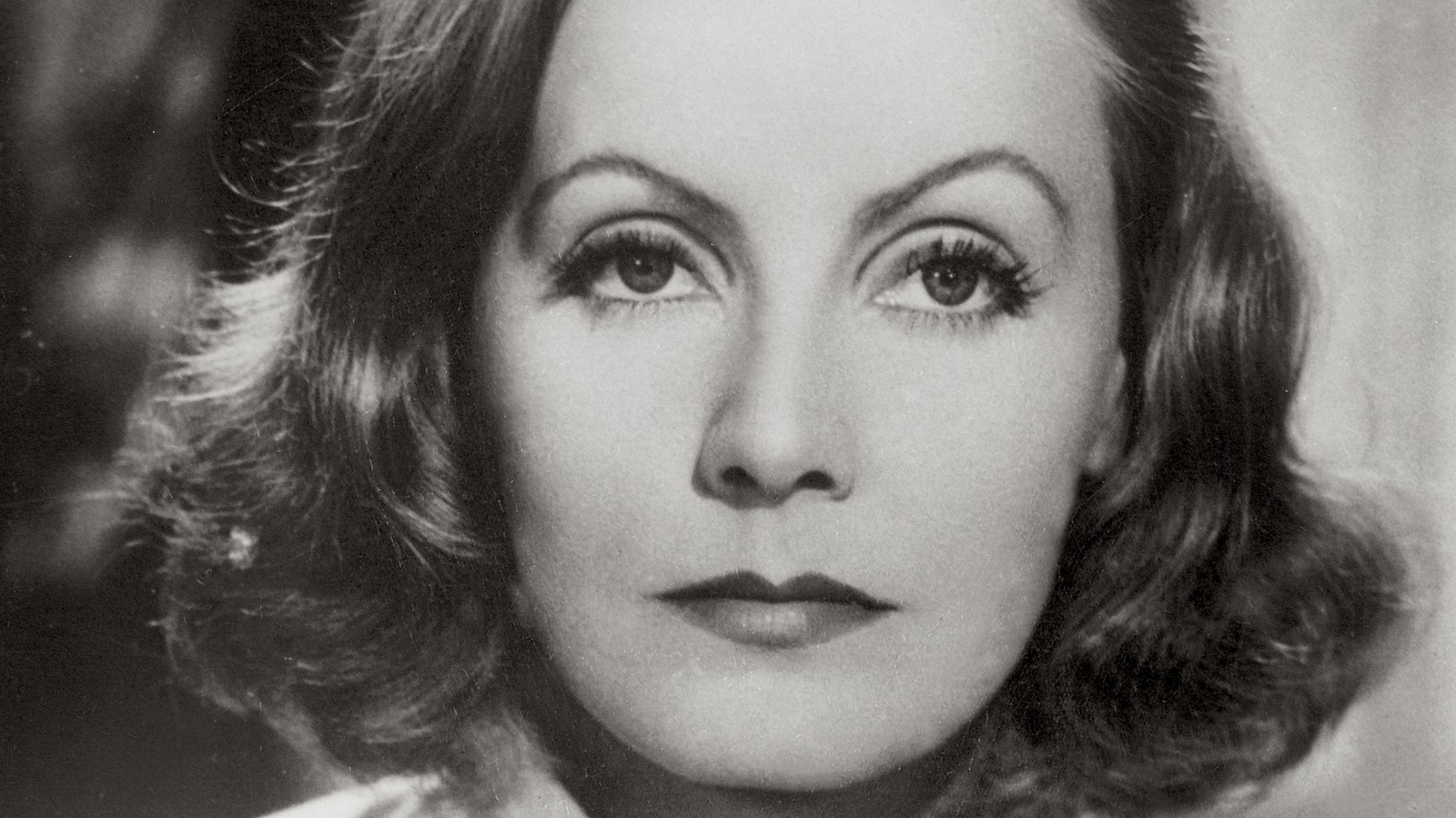
23. Their Bond Lasted
After failed directing contracts with two different film studios in Hollywood, Garbo’s one-time mentor and Svengali Mauritz Stiller returned to Sweden with his tail between his legs. When he arrived, he fell ill and was hospitalized. Soon after, he passed on from pleurisy. He was only 45. As he lay dying, he’d clutched a photo of Garbo, taken soon after they’d arrived in California together.
Without Stiller, Garbo never would’ve been in Hollywood—and now she was there without any of her old friends from back home. At least she had Gilbert…or did she?
24. They Fizzled
Some bright flames can sustain themselves, while others burn out due to their own intensity. For Greta Garbo and John Gilbert, it was the latter. Despite starring in multiple films together throughout the late 20s, their romance fizzled out, and it may have been due to Garbo’s roaming eye. She was linked to other stars at this time—but there was an even more scandalous side to it all.
25. She Mixed It Up
Many of Garbo’s biographers have speculated that she was bi. In 1926, she was linked to starlet Lilyan Tashman, and “It Girl” Louise Brooks also claimed to have had an affair with Garbo in 1927. Garbo was already tight-lipped about her love life, so you can imagine that she definitely didn’t let a lot slip when it came to her dalliances with women.
Still, it wouldn’t be the only time that Garbo would provide grist for the rumor mill.
26. Her Face Called The Shots
Around this time, Garbo became known for making bizarre demands on set—but as the biggest star MGM had, they were quick to acquiesce. While filming, she demanded that as few people as possible be on set, and banned studio bosses from intruding. As well, she had a system of privacy screens set up so that extras or extraneous crew members couldn’t see her. But she had her reasons.
It was still the silent era and Garbo was known and beloved for the multitude of expressions she could make on screen. She claimed that: "If I am by myself, my face will do things I cannot do with it otherwise." Whatever you say!
27. They Had To Move Quickly
Greta Garbo had netted MGM an untold amount of cash with just her face during the silent era. However, as the film industry shifted to sound, they dragged their feet on the switch. In 1929, Garbo starred in The Kiss—a film which would be both MGM’s last silent film, and Garbo’s. The actress was rushing to learn English and work on her accent for her transition to sound. It was a huge gamble for everyone involved, and tensions were high.
28. She Was Too Good
Garbo’s first sound film was perhaps the most carefully chosen of any starlet’s of the era. The movie’s name is Anna Christie, and the studio picked it because the main character was Swedish, and so Garbo wouldn’t have to hide her accent. However, the whole thing backfired spectacularly. Garbo had learned English so fast and had become so good at it that her Swedish accent was practically gone, and she had to re-cultivate it for the film. Hiccup or not, the gamble paid off.
29. Garbo Talks!
For Anna Christie, MGM promoted the film with the tagline “Garbo talks!” She was the biggest star of the day, and that was all that it took for the film to be a runaway success. Not only was it the highest-grossing film of the year, but it also netted Garbo her first Oscar nom. However, behind the scenes, Garbo was utterly miserable. She was unhappy with the way the film portrayed Swedes, and once again frustrated with the studio.
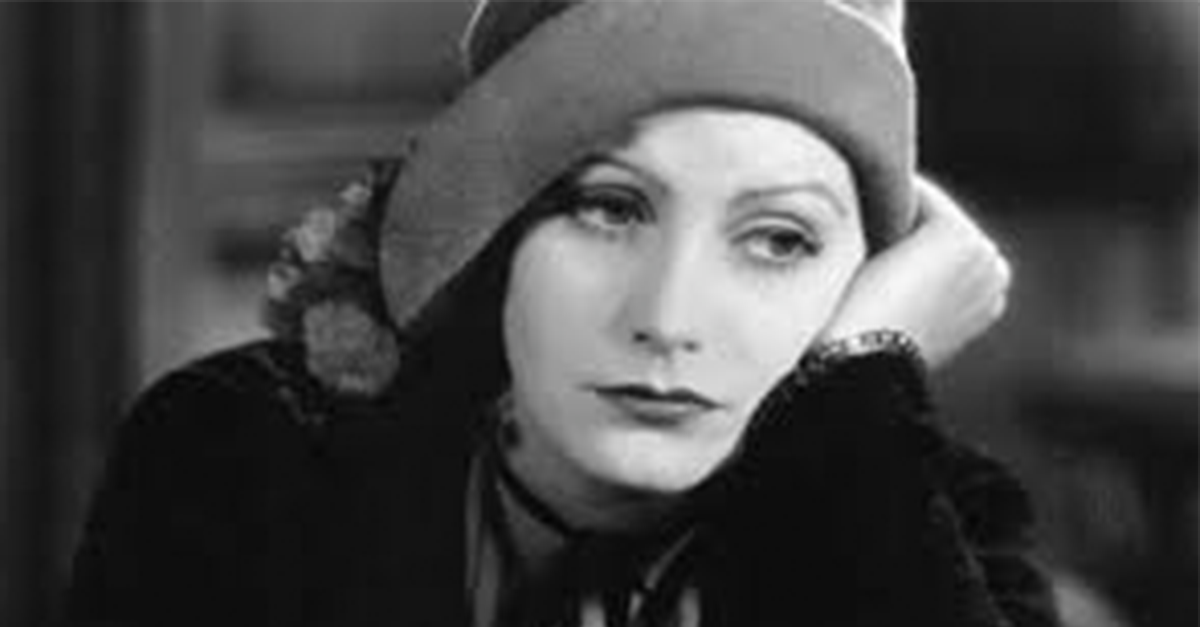
30. It Hit Her Hard
If it were any other time, Garbo might’ve packed her bags and left MGM. However, according to MGM exec Irving Thalberg, she couldn’t—because she was hiding a dark secret. When a screenwriter expressed reservations about Garbo’s dedication to the studio, Thalberg let it slip. He claimed that she’d had all of her money in one bank in Beverly Hills—and that it had been wiped clean in the Great Crash of 1929. Hollywood’s most bankable actress was broke.
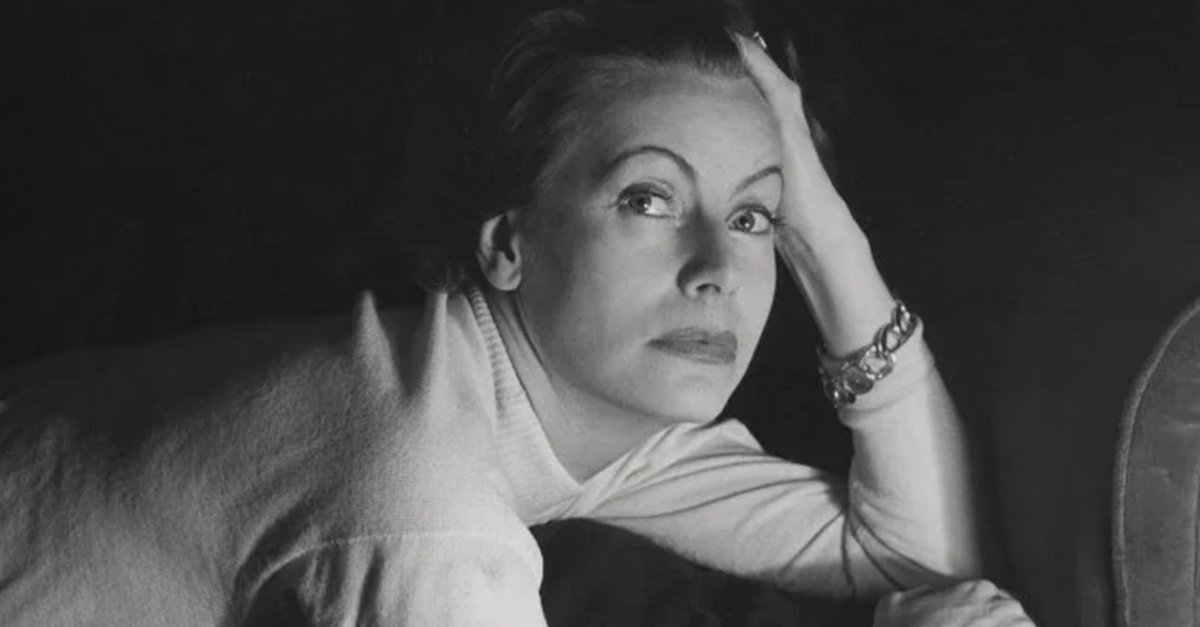
31. She Was Too Cold
Garbo had cultivated an icy persona, but at this point, it was hard to tell if it was put-on or if it was the real thing. In 1931, the studio was looking for a vehicle for their newest young hunk of a star, a man named Clark Gable, so they put him opposite Garbo. The results were explosive—but not necessarily in the good way. While the film was a success, they were like oil and vinegar when the cameras were off.
She thought his acting was “wooden,” and he thought she was a “stuck-up snob.” He certainly wouldn’t be the only one.
32. She Caused A Panic
Garbo was stuck at MGM for better or for worse—and luckily, her next film was for better. She portrayed the legendary dancer-turned-WWI spy Mata Hari in the film of the same name. The hotly anticipated film was such a sensation that it caused a public disturbance. When it premiered, there was a mass "panic, with police reserves required to keep the waiting mob in order." It was, once again, an unmitigated triumph. Mata Hari was not only MGM’s biggest film that year, it was also the biggest film of Garbo’s career.
Does that mean that it was all downhill from there? Not necessarily. Was it still a heck of a ride? Absolutely.
33. They Got Too Into It
For every story of Garbo’s icy demeanor on set, there’s another of her, ahem, dedication to her love scenes. On the set of Grand Hotel, she had very strict requirements for her love scenes with John Barrymore—but they worked a little too well. Garbo and Barrymore became so carried away that they didn’t hear the director saying “Cut!” for a full three minutes after the first time he said it. Passion or not, Barrymore was married—and Garbo had someone else on her mind anyway.
34. She Fell For Her
In 1931, Greta Garbo met the writer Mercedes de Acosta—and according to biographers for both, they began a passionate, scandalous, and tempestuous love affair that would last for years. Garbo was rarely satisfied with the pictures that MGM had for her, and she brought them a script by de Acosta about the life of Joan of Arc.
Sadly, MGM shut down any possibility of making their passion project together. She may have been red hot with de Acosta, but Garbo’s already-cold relationship with MGM was only getting frostier.
35. She Was A Good Friend
Garbo may have had a reputation for her icy and reserved demeanor on set, but every once in a while she would do something that went completely against the grain. As You Desire Me was Garbo’s last film in her contract with MGM, and instead of antagonizing the studio heads or jockeying for more money, she spent her time on set covering for her co-star, Erich Von Stroheim. His story bore a striking resemblance to that of her former mentor, Mauritz Stiller.
Von Stroheim was an acclaimed European director who the studios had mistreated and fired. So, even though MGM had banned him from the lot, Garbo insisted on hiring Von Stroheim for the film, and when he was too depressed and sick to work, Garbo insisted that she was sick, and shut down production. It was one final gesture at showing the studio who the real boss was.
36. She Went Home
Garbo had spent her entire Hollywood career under MGM, and while it had been extremely lucrative, it hadn’t really been fulfilling for her artistically. Finally, she was free and was able to return to Sweden for the first time in years. All disagreements and drama aside, MGM knew that they had a big-money star in Garbo, and did everything they could to lure her back for a second contract.
Garbo used her leverage to make a number of demands—chief among them that she get to star in a film called Queen Christina.
37. She Knew What She Wanted
MGM was desperate for Garbo to come back, so they acquiesced. When it came time to pick a male co-star, they bandied about a number of names—but every time they tried to test Garbo opposite a new star, she froze up. She was actually doing it on purpose, because she already knew who she wanted to play her lover—and her decision shocked the studio.
Garbo was set on starring opposite John Gilbert, her one-time lover and frequent co-star. His star was on the decline, but she didn’t care.
38. She Brought Him Back From The Brink
Once again, one could easily suspect Greta Garbo of harboring a serious sense of altruism when she insisted on Gilbert’s casting. He had all but retired from acting, and when she asked for him to appear in Queen Christina, MGM had been forced to offer him another contract. Gilbert was also recently remarried, with a baby on the way, so the timing couldn’t have been better. Sadly, though Garbo tried, she couldn’t save her old friend and one-time lover—but more on that later.
39. She Made Up For It
Garbo was using her second act with MGM to atone for past sins, and Gilbert wasn’t the only one she was trying to rescue. Whereas the studio had once butchered the classic Anna Karenina and made it into the film Love eight years earlier, she insisted on a remake that was more faithful to the iconic novel. Her next film, Camille was supposed to be the pinnacle of her career—but the experience was far from gratifying.
40. She Lost Another Friend
Over the years, Garbo had clashed with MGM producer Irving Thalberg countless times—he was the one who spread the story that she was broke, after all. However, they’d set aside their difference and she’d become close with him and his wife. He was heavily involved in the making of Camille, and especially in Garbo’s performance. Then, in the middle of production, tragedy struck.
Thalberg contracted pneumonia and passed on at the age of 37. Upon hearing of the loss, Hollywood stood still. He’d been an incredibly important figure, and his passing left many of Hollywood’s biggest players absolutely inconsolable—Garbo among them.
41. They Targeted Her
While Camille was a smashing success, the loss of Thalberg had taken much of the joy out of the experience for Garbo. Her interest in film was rapidly waning, and the audience’s interest in her showed a similar trend. Around the same time, a group of theater owners took out an infamous ad that addressed Hollywood producers, calling a number of their biggest stars “Box Office Poison,” Garbo among them. The atmosphere was…not great.
42. She Finally Flopped
MGM had hoped that melting her icy reputation by casting her in a comedy would help her career, and for a brief moment, it did. But when they tried to replicate that success a second time, it was an absolute disaster. When the reviews came in for Garbo’s turn in the romantic comedy Two-Faced Woman, they were brutal. Garbo was not pleased.
43. It Was The End
After the ill-fated release of Two-Faced Woman, Garbo’s reaction was swift and dramatic. The legendary actress effectively retired from film at that moment. It hadn’t been intentional at first, and Garbo had shopped around for her next project, but WWII had hampered the development of many films that she was looking at. Garbo was just 36, and was still one of the biggest stars in Hollywood, but she never appeared in a film again.
44. She Hated Them
Throughout her career, Garbo displayed a general dislike of Hollywood life. She never signed autographs, answered fan mail, or gave interviews. She also refused to attend film premieres or awards ceremonies, even turning down an invite to the 1955 Oscars, where she was to receive an honorary Oscar. Ironically, all her efforts to avoid publicity only increased her mystique for fans, and cemented her as the most famous woman in the world.
Even after retirement, the press was still obsessed with her and hung on her every move. She spent the next three decades living a life of leisure, filling her days with friends and long walks—but it wasn’t all R&R.
45. She Struggled
Retirement left Garbo with the time to face a harsh reality. Despite all the good humor and altruism she displayed behind the scenes, she was a lot like the woeful characters she played on screen. Garbo often felt melancholy and moody, and once confessed to a friend, “I suppose I suffer from a very deep depression.” She tried to break it out of it by taking up weird diets and dabbling in mysticism, but refused to give up cocktails or smoking. The ol' college try!
46. She Was The Toast Of The Town
By 1953, Garbo’s retirement was official, so she packed her bags and left Hollywood for New York—the city where, some three-decades before, she’d spent a sweltering summer waiting for MGM to call her and jumpstart her career. While Garbo remained fiercely private, she still made many friends in NYC, including a young art dealer named Samuel Adams Green.
As a consequence of his profession, Green recorded most of his phone calls. It was a habit that, strangely enough, Garbo didn’t seem to mind—until one fateful day.
47. She Was Turning Away
Garbo had heard a rumor that Green had played some of their private phone calls at a dinner part, and her reaction was brutal. She immediately cut Green off, despite his proclamations of innocence. Many years later, Green realized the heartbreaking truth. Around that time, Garbo’s physical and mental health had been deteriorating, and he was just one of many friends that she cut completely out of her life.
For his part, Green kept the tapes to himself, before eventually bequeathing all 100 hours of them to Wesleyan University.
48. The Tables Had Turned
In 1984, Garbo beat mammary cancer, but the health scare took its toll, and she continued to decline. As a teenager, Garbo had helped her father as he attended lengthy kidney treatments—and now, in her old age, Garbo had to go for six-hour dialysis treatments three times a week at New York Hospital. In April 1990, Garbo passed on from pneumonia and kidney failure at the age of 84.
Film historians, critics, and fellow stars were quick to extol her artistry, beauty, and body of work. But there was also something else. Garbo had fiercely withheld many aspects of her life for decades—and after her passing, much of what she had kept guarded was finally out in the open.
49. They Exposed Her
One of the reasons that Garbo may have cut off so many friends throughout the years was that so many of them wrote tell-all memoirs that included her. There were the affairs with Cecil Beaton and novelist Erich Maria Remarque. However, there was one expose that hurt her so much more than the others.
Garbo’s affair with poet Mercedes de Acosta had been intense and passionate. Over the years, Garbo had written her 181 cards, poems, and letters—but when de Acosta released a memoir in 1960 that alluded to many lesbian relationships, Garbo cut her off completely. And de Acosta wasn’t the only one Garbo was writing to…
50. Her Love Lasted Decades
One of Garbo’s oldest friends was Mimi Pollak, who had been a fellow student at the Royal Dramatic Theatre school in Stockholm. The two stayed close throughout the years, but Garbo’s letters to Pollak indicate that her feelings may have been a bit more than platonic. When Pollak was pregnant in 1930, Garbo wrote to her: "We cannot help our nature, as God has created it. But I have always thought you and I belonged together." But Pollak was just another of Garbo’s many loves…
51. She Stole Her Husband
Her romances with co-stars and lesbian affairs were wild—but one of Garbo’s relationships tops them all when it comes to sheer scandal. Garbo had been shopping for a dress one day in 1941 when she stopped into a shop run by designed Valentina Schlee. As the story goes, she met Valentina’s husband George Schlee soon after, while undressed in the dressing room—and thus began their bizarre love affair.
52. He Kept Her Close
Despite her tough and self-sufficient exterior, Garbo had often relied on relationships with “mentor” figures like Mauritz Stiller, John Gilbert, and Irving Thalberg. Some were romantic, others weren’t. Her relationship with Schlee, although unconventional, wasn’t much different. They were obsessively close throughout the 1940s—but their relationship had an even more disturbing dark side.
Schlee was incredibly possessive and jealous, and he had actually been the one to compel Garbo to buy her apartment in New York City. Why was that so important? Well, it was in the same building as the apartment he shared with his wife.
53. She Had To Deal With A Furious Wife
Valentina Schlee let the affair between her husband and Garbo happen, but it didn’t mean that she had to be happy about it. She was embarrassed, and she largely left the pair to their own devices. Garbo and Schlee’s relationship lasted more than two decades, until his untimely passing. The couple had been out for a walk in Paris when he suffered a heart attack and collapsed. Garbo was heartbroken, but the tragedy didn’t end there.
54. She Was Scared Of Her
When Schlee collapsed in the street, Garbo had called a close friend in a panic, fearing what would happen if word got out. She was able to retreat before reporters took notice, but the consequences were devastating. The authorities summoned Schlee’s wife to collect his body, and Valentina then banned Garbo from the funeral. For Schlee, the bitterness and resentment never abated.
Both Garbo and Schlee continued to live in the same building, but Garbo would scurry back to her apartment every day before 5:30. Why? Well, Schlee would leave the building every day at 6. It’s hard to imagine the great Greta Garbo being scared of anyone—but by all accounts, she seemed terrified of her lover’s widow.
55. She Did Try To Get Married Once
Garbo never really found a film that satisfied her, and it seems like the same thing went for her lovers. She had children or married—but she had once come close. Back at the beginning of her Hollywood career, when she’d been living with John Gilbert, he’d proposed several times, only for her to rebuff him. Then, one day, she finally accepted—and that wasn’t the only strange part.
56. She Couldn’t Do It
Garbo and Gilbert’s marriage was actually supposed to be a double wedding with director King Vidor and his fiancée, Eleanor Boardman. However, Gilbert was in for a brutal surprise. Garbo got cold feet and backed out at very last minute. While Garbo later said that while she did actually love him—probably the most candid admission she’d ever made—that she froze when it came time to get married. Garbo walked away, and Gilbert was left with a broken heart.
57. She Had Second Thoughts
After Garbo’s rejection, Gilbert asked actress Ina Claire to marry him. They were supposed to tie the knot in Las Vegas—but just before the ceremony, Gilbert’s best friend received a frantic call from Garbo. She begged him to stop the wedding. His reply was that only she could do that. Garbo was forced to make a heartbreaking choice.
She could go after the man she loved, but it would inevitably lead to a tabloid scandal, and there was nothing that Garbo hated more than that kind of attention. She let the wedding go on, and when the wounds healed, Garbo and Gilbert became friends again.
58. He Was A Troubled Man
Still, she helped Gilbert revive his career by forcing MGM to cast him in Queen Christina. Sadly, it didn’t really work. His career floundered yet again—and despite all of her efforts to save him, he faced a terrible fate. Gilbert battled addiction, and suffered two successive heart attacks in 1935 and 1936 which took his life.
Garbo’s relationship with Gilbert was probably the most conventional romance she had in her life—but she didn’t seem to look back on it with rose-colored glasses.
59. Her Put-Downs Were Legendary
Many years after Gilbert’s passing, Garbo recalled their once-passionate romance—but instead of fondly eulogizing her ex, her remembrance was utterly devastating. Garbo said of Gilbert: "I can't remember what I ever saw in him." That wasn’t the only time that her sharp tongue left wounds either. Once, MGM arranged for Garbo to have lunch with Prince Wilhelm of Sweden.
She turned him down with one of the most epic rejection lines in history. Garbo said: “Thank you. I’m not hungry.” It takes serious guts to turn down lunch with a prince!
60. She Played A Dangerous Game
It’s no wonder that Greta Garbo liked keeping secrets so much. She may have been just as talented at it as she was at acting! During WWII, many had criticized Garbo for not taking a stand and aiding the Allied forces—little did they know, she was actually hiding a chilling secret. In 1976, a former British spy revealed that Garbo had secretly helped him and Britain. Not only had she named Nazi sympathizers in Stockholm, she’d also introduced them to British spies and helped secretly transmit messages.
Sources: 1, 2, 3, 4, 5, 6, 7, 8, 9, 10, 11, 12, 13, 14, 15, 16, 17, 18, 19, 20, 21, 22, 23, 24, 25, 26, 27, 28, 29, 30, 31, 32, 33, 34, 35, 36, 37, 38, 39, 40, 41, 42, 43, 44, 45

